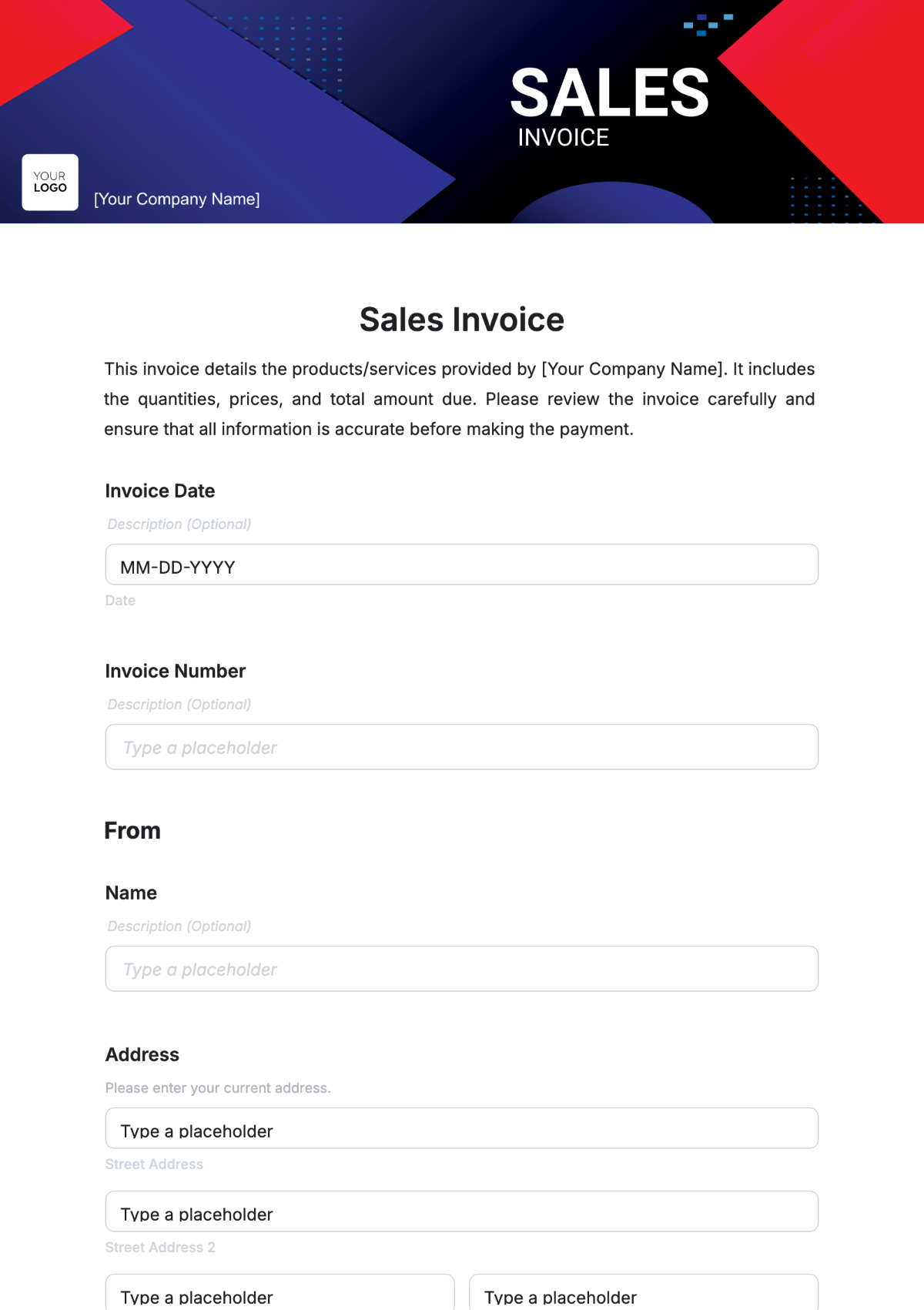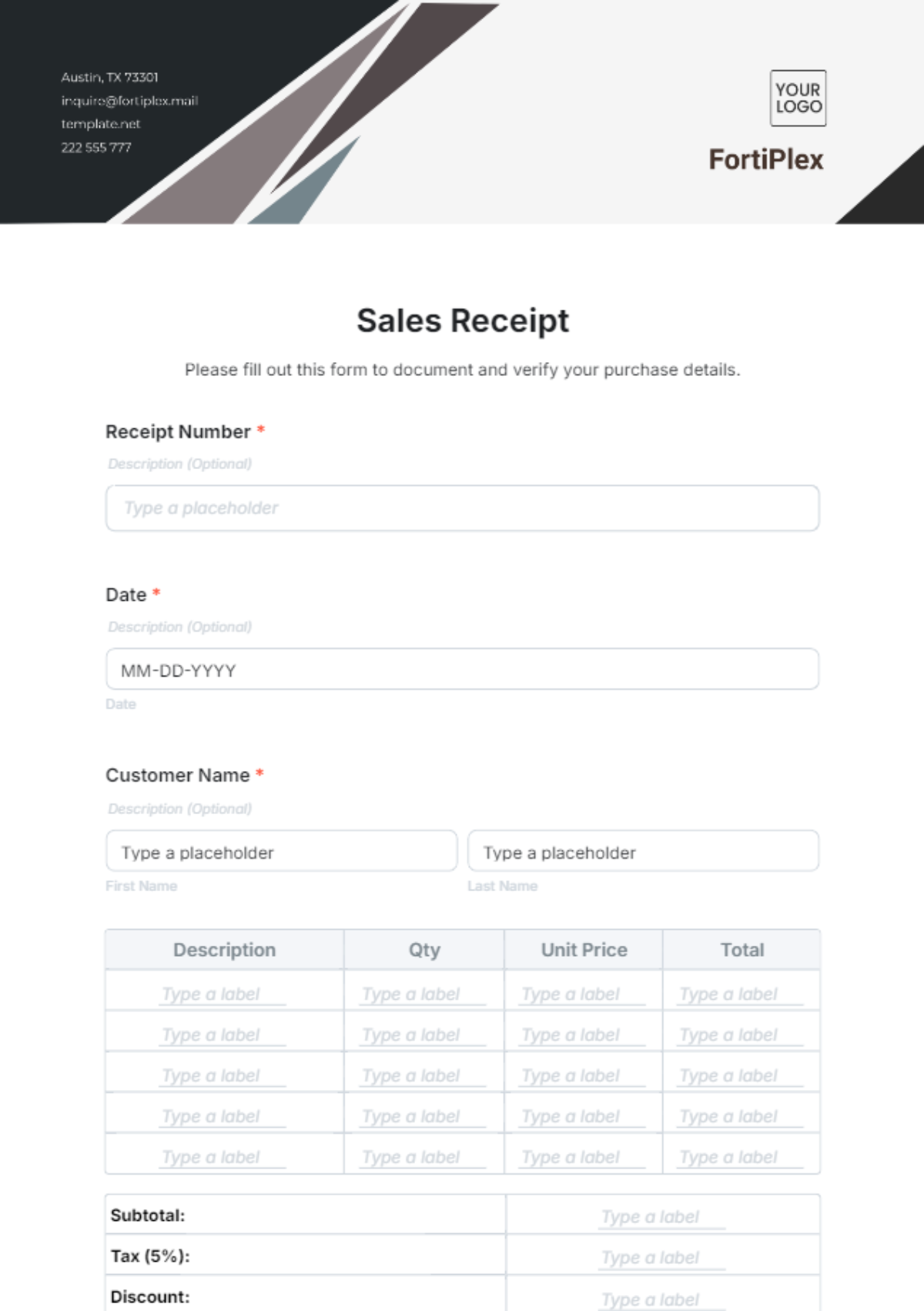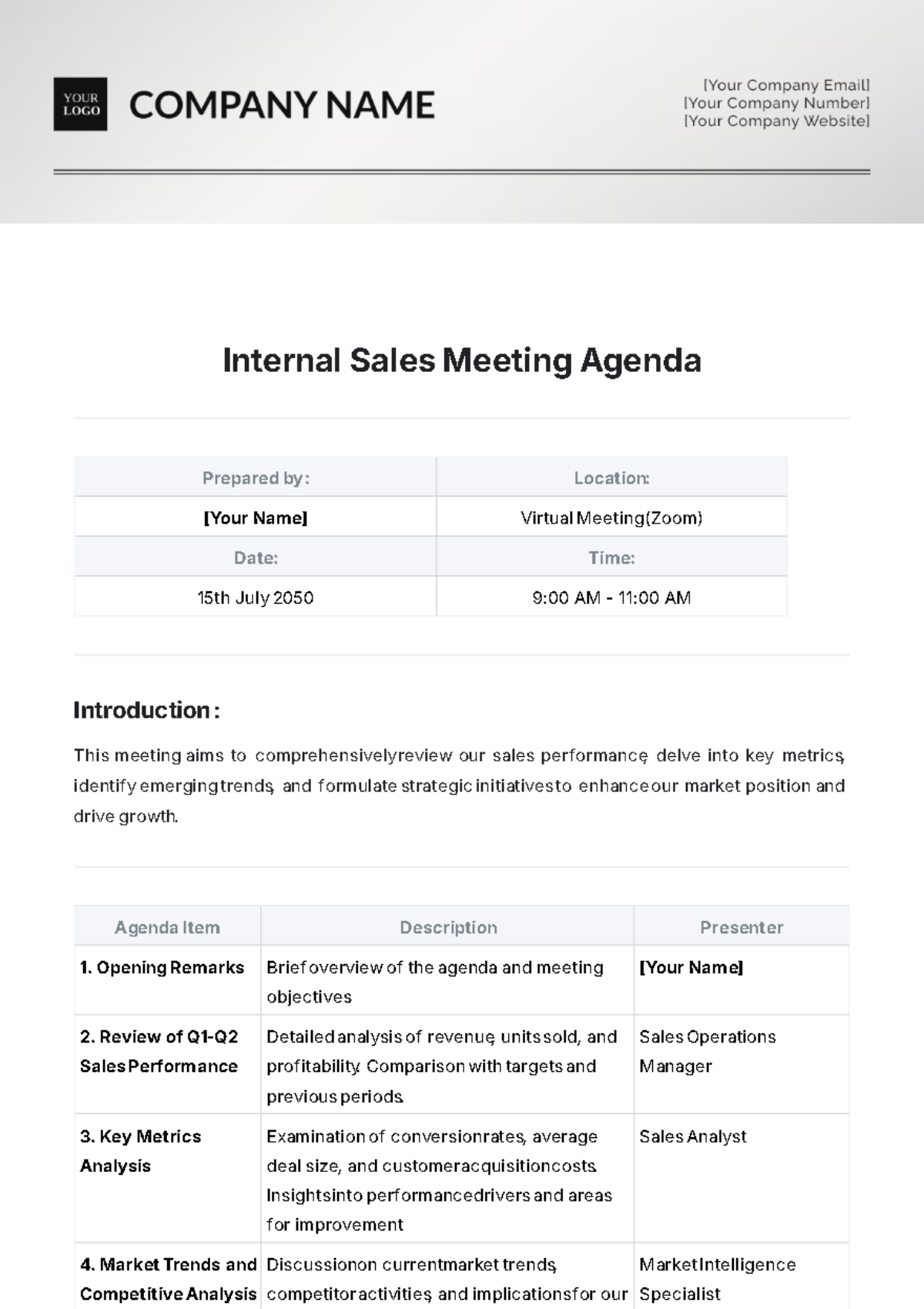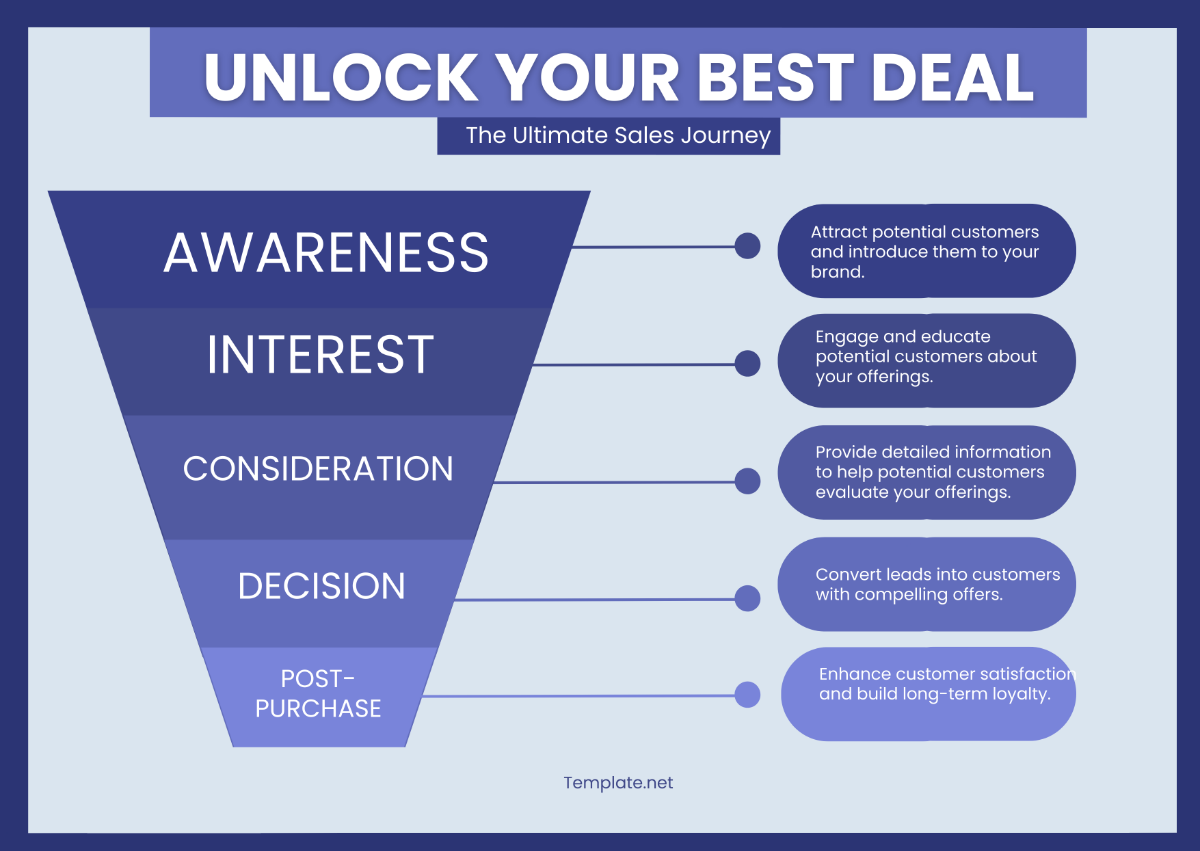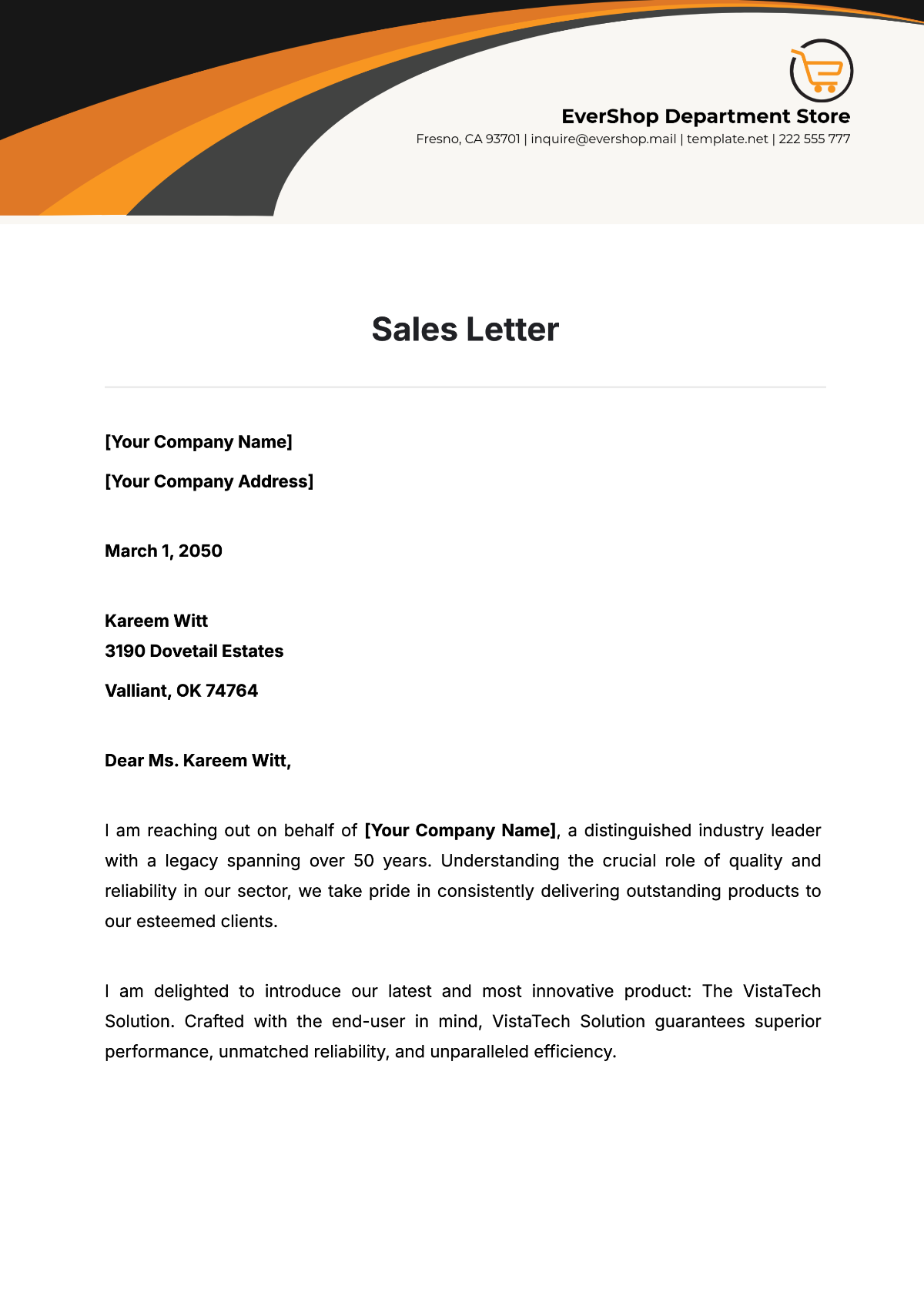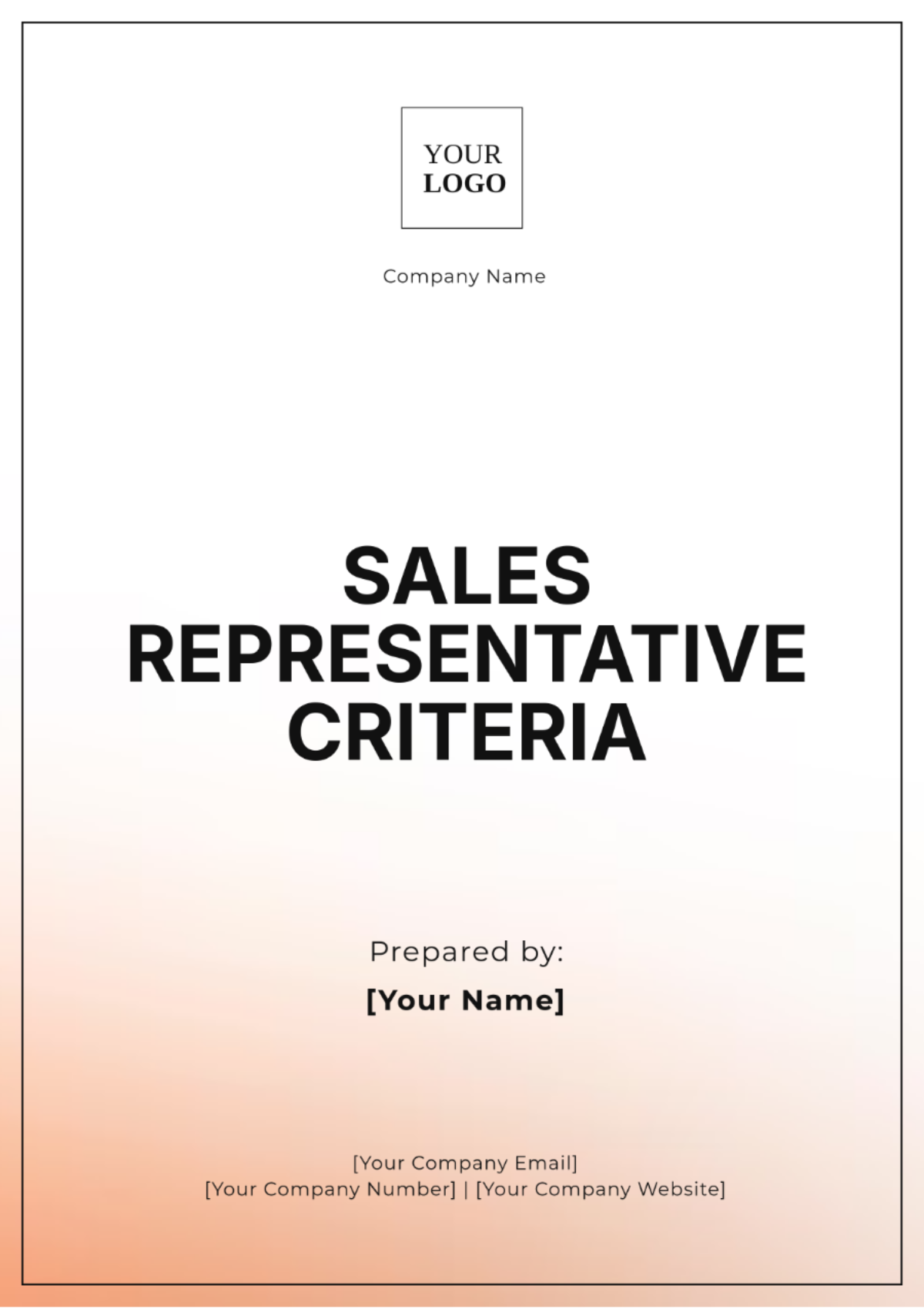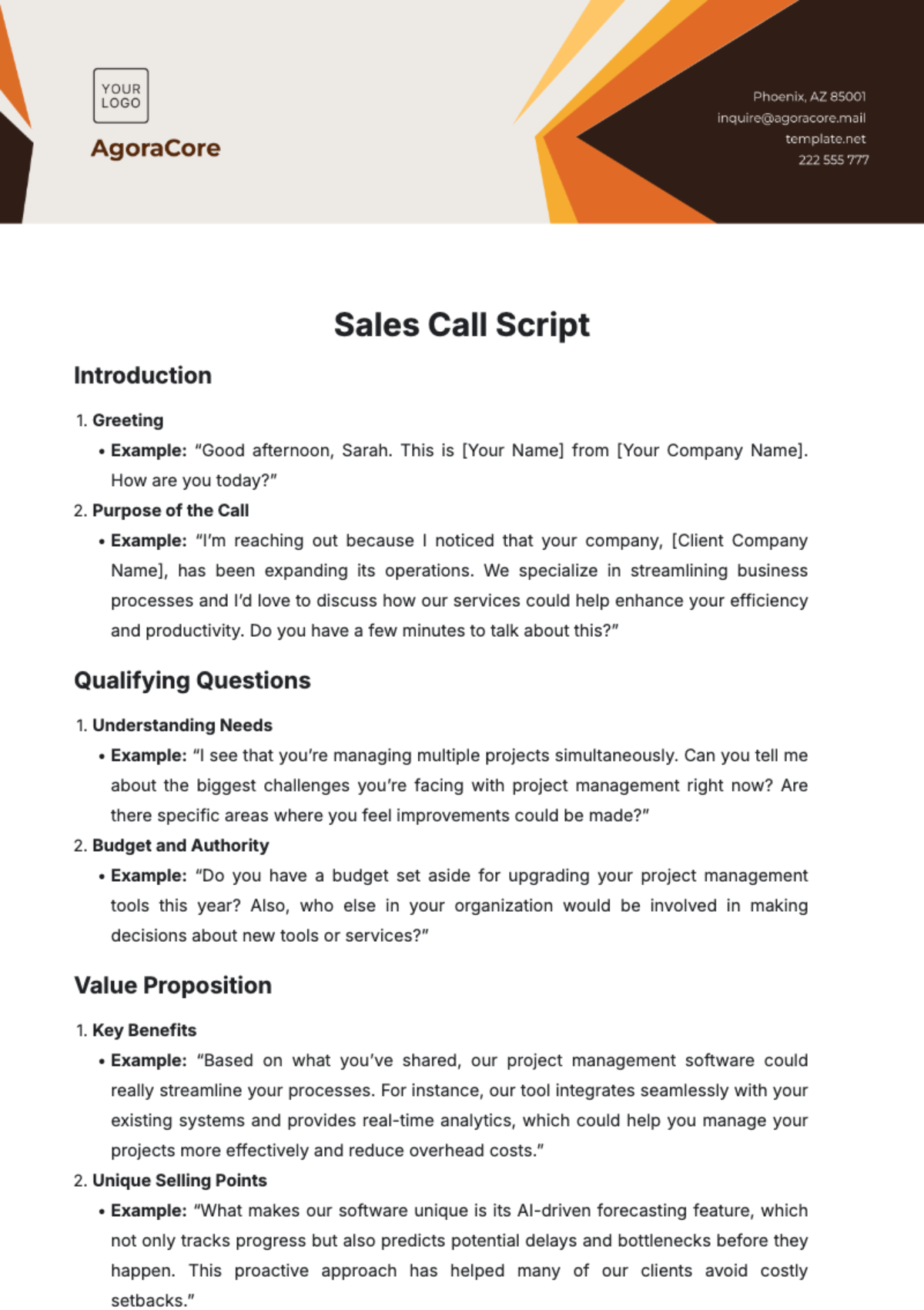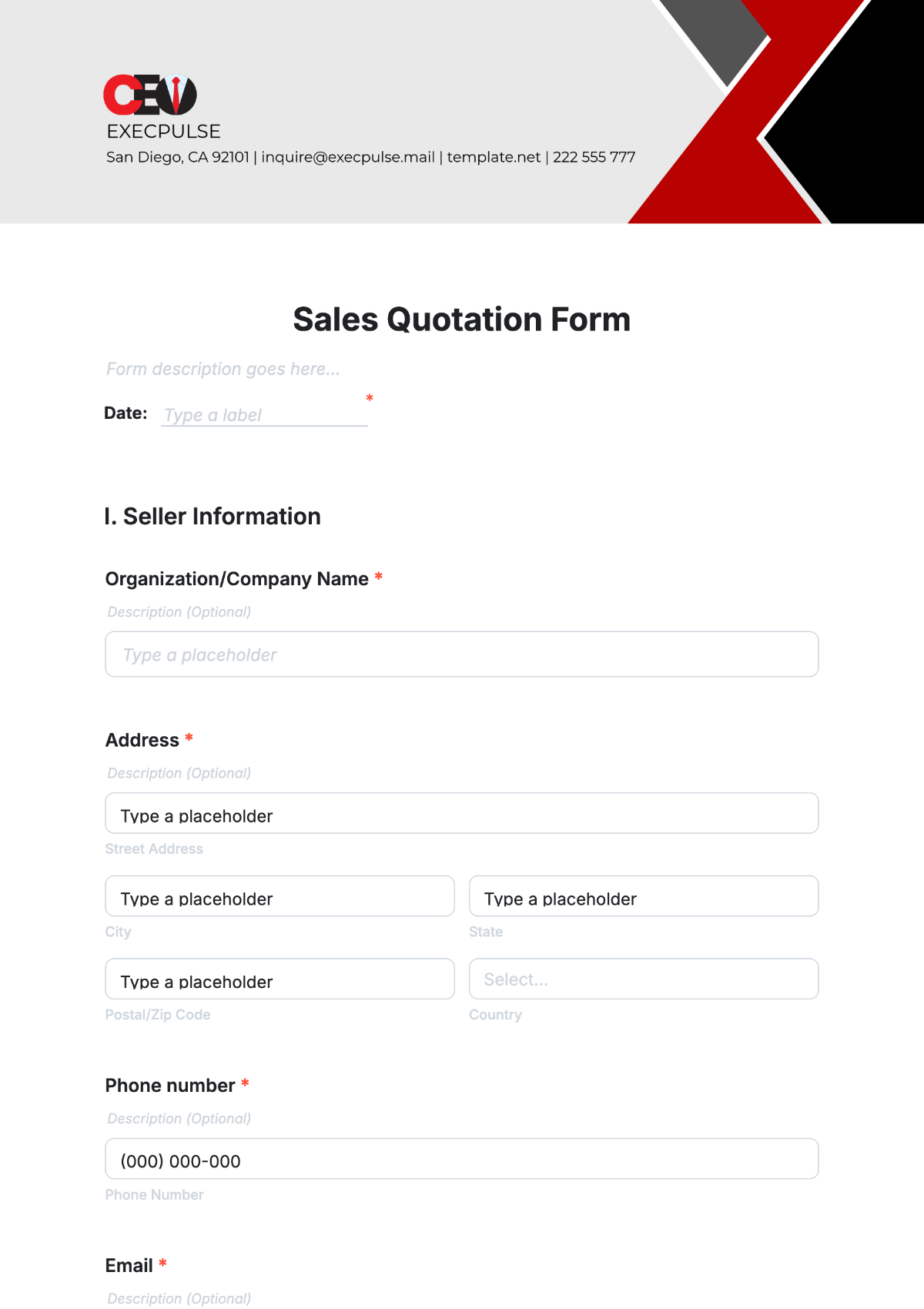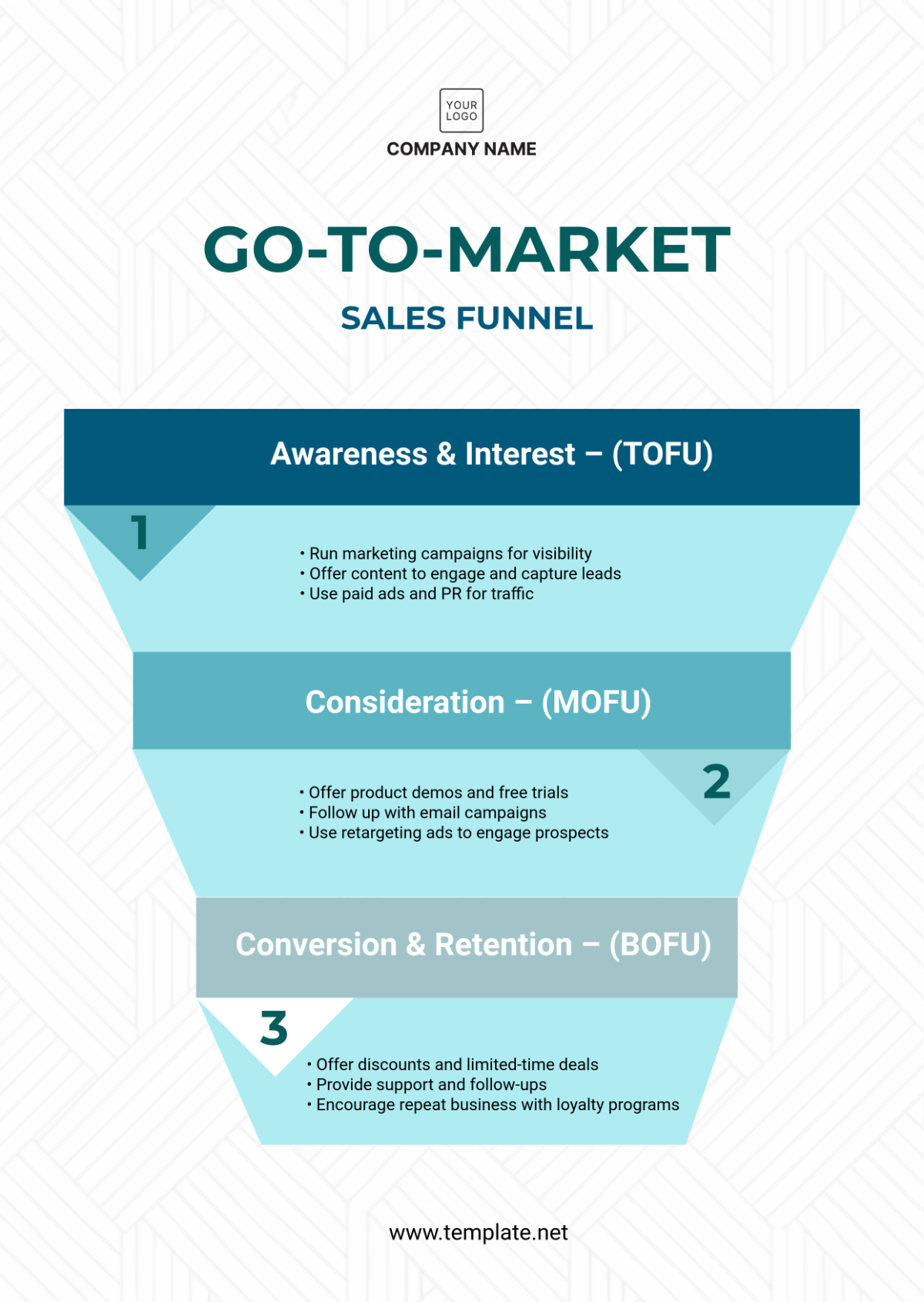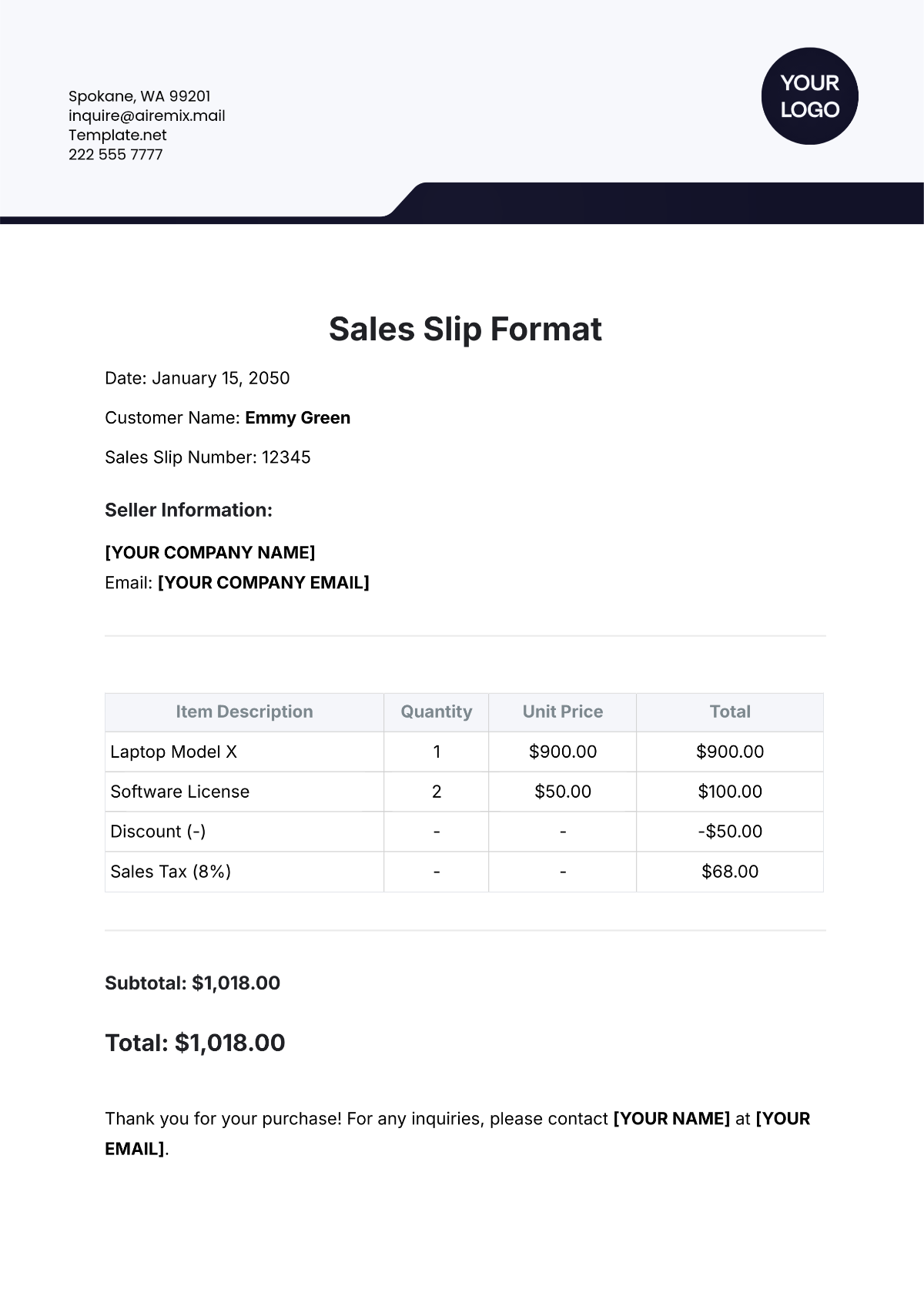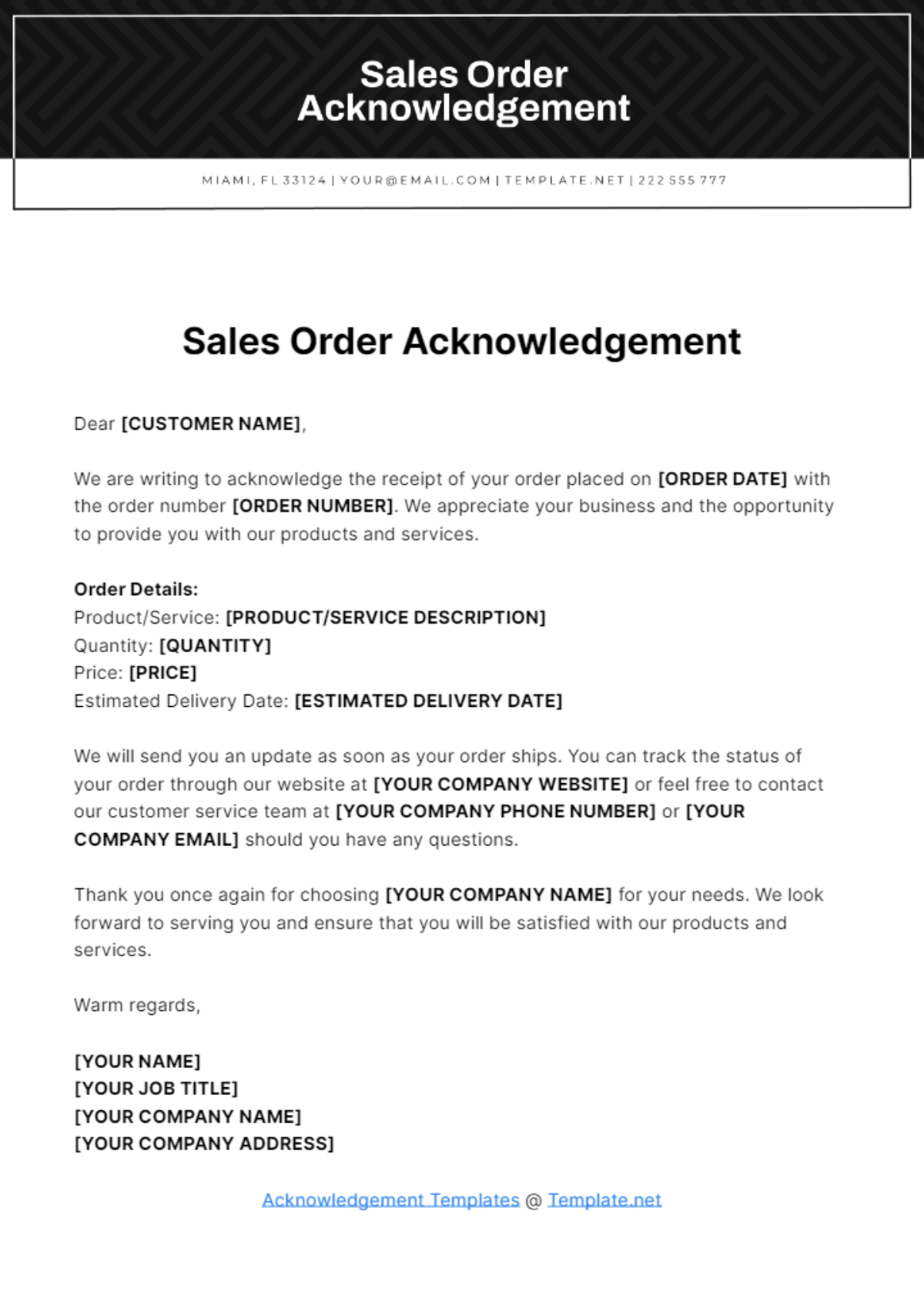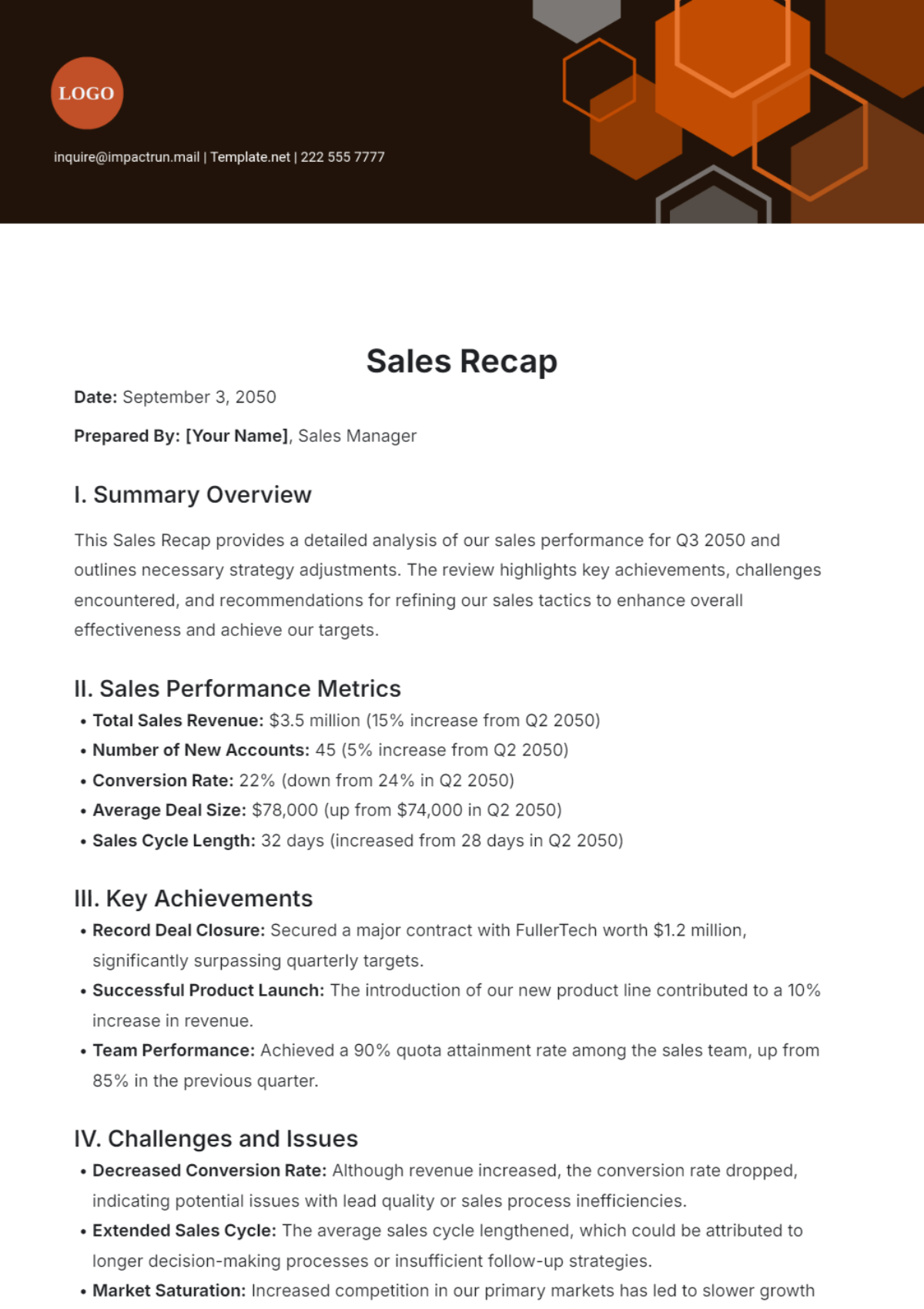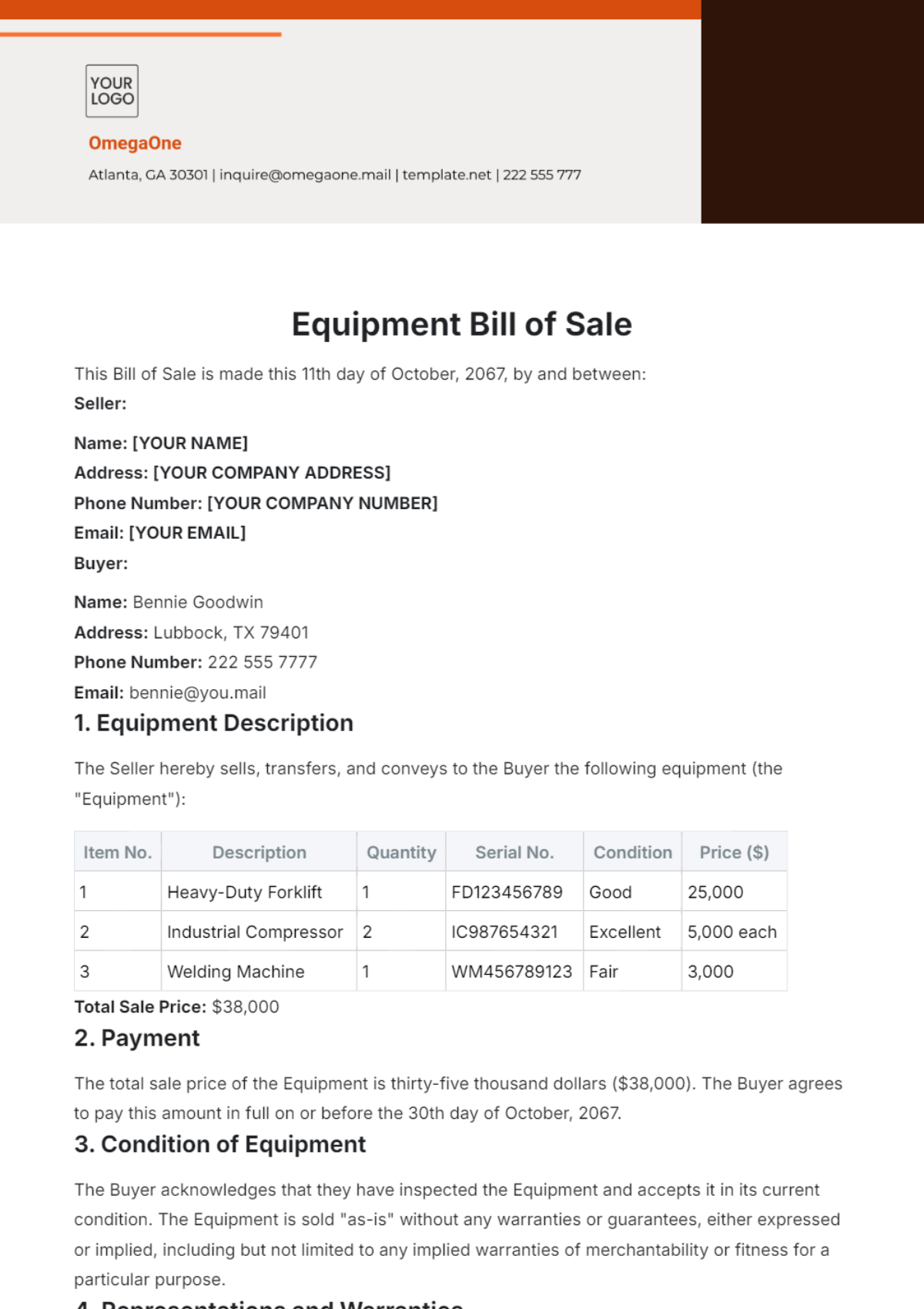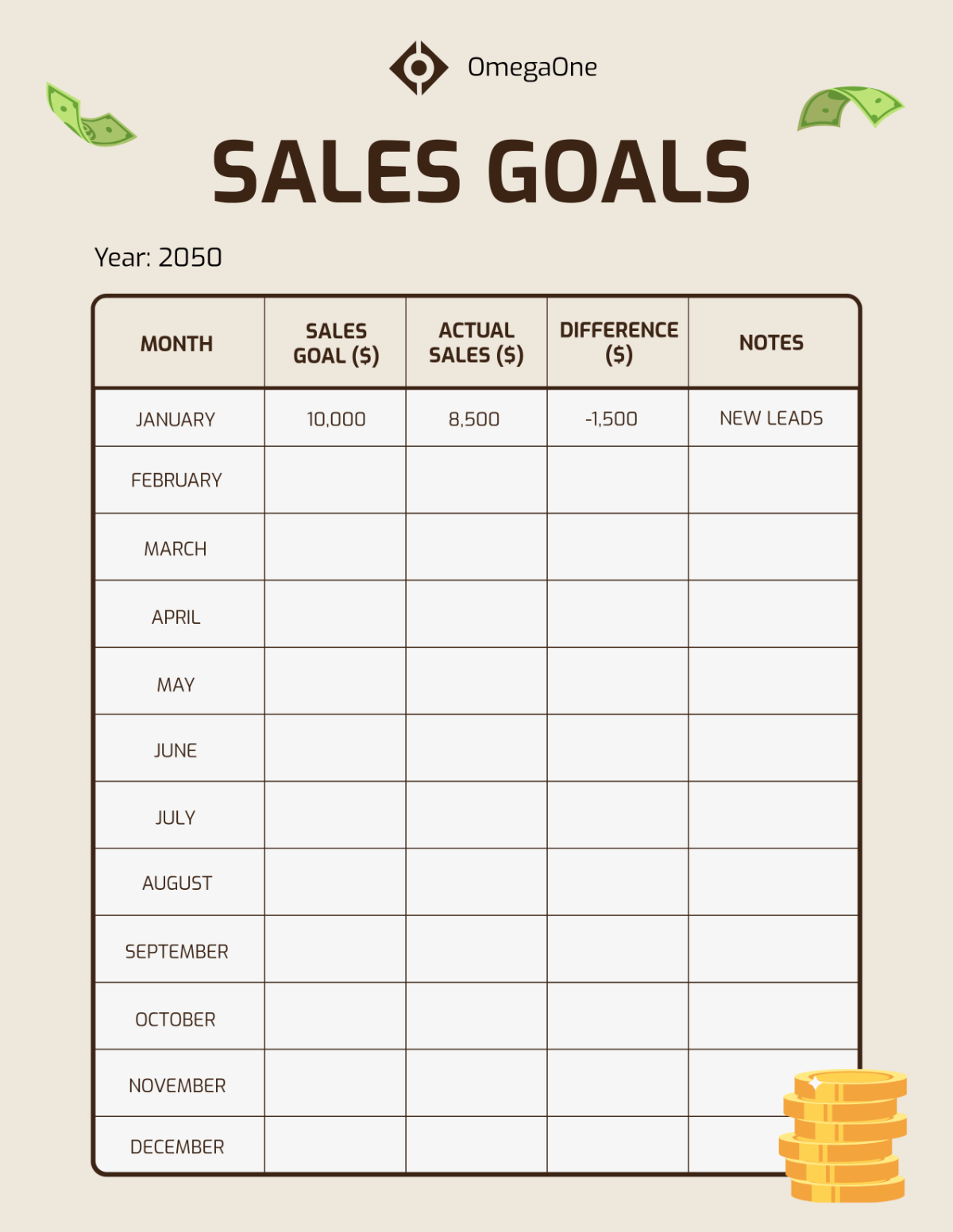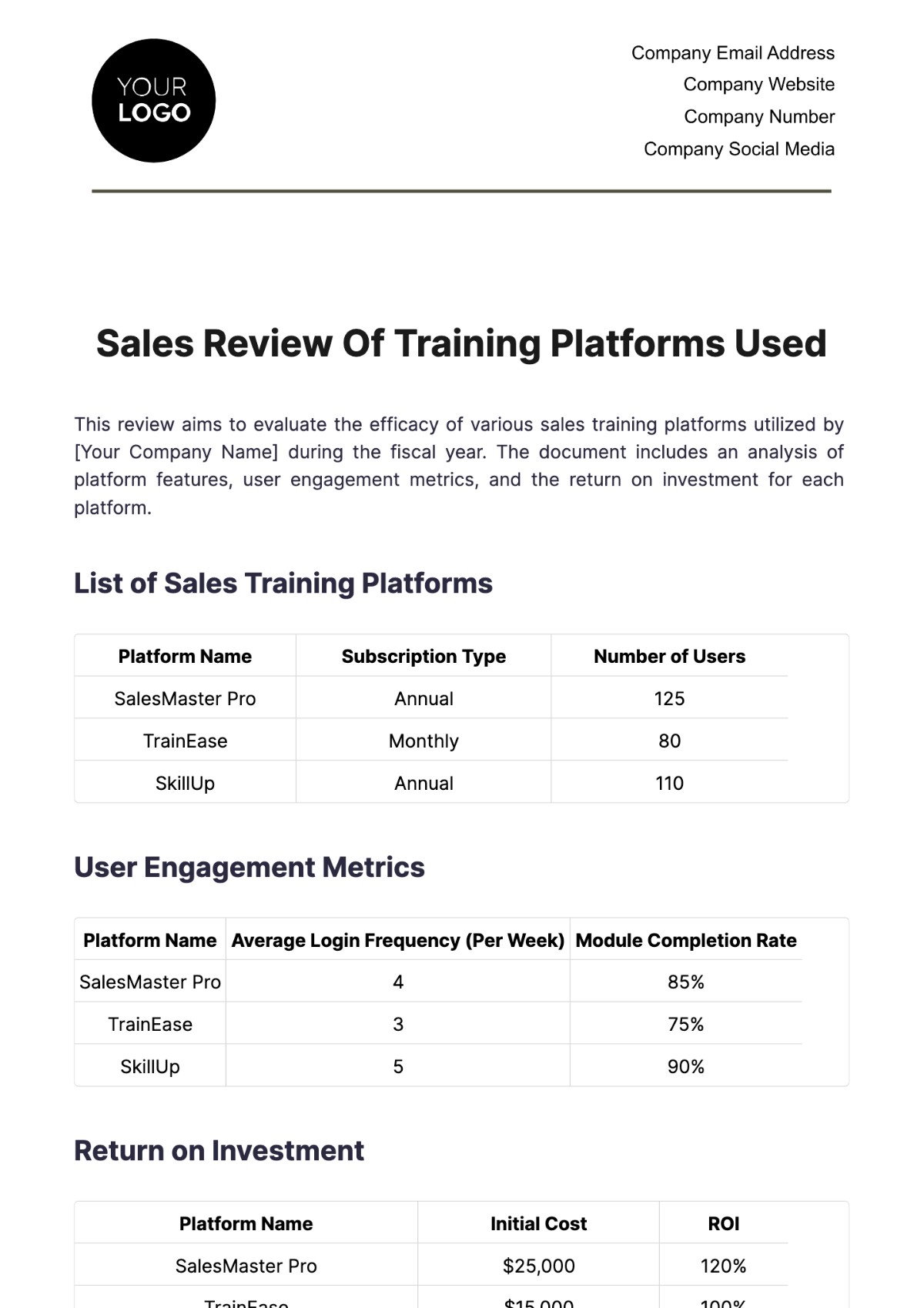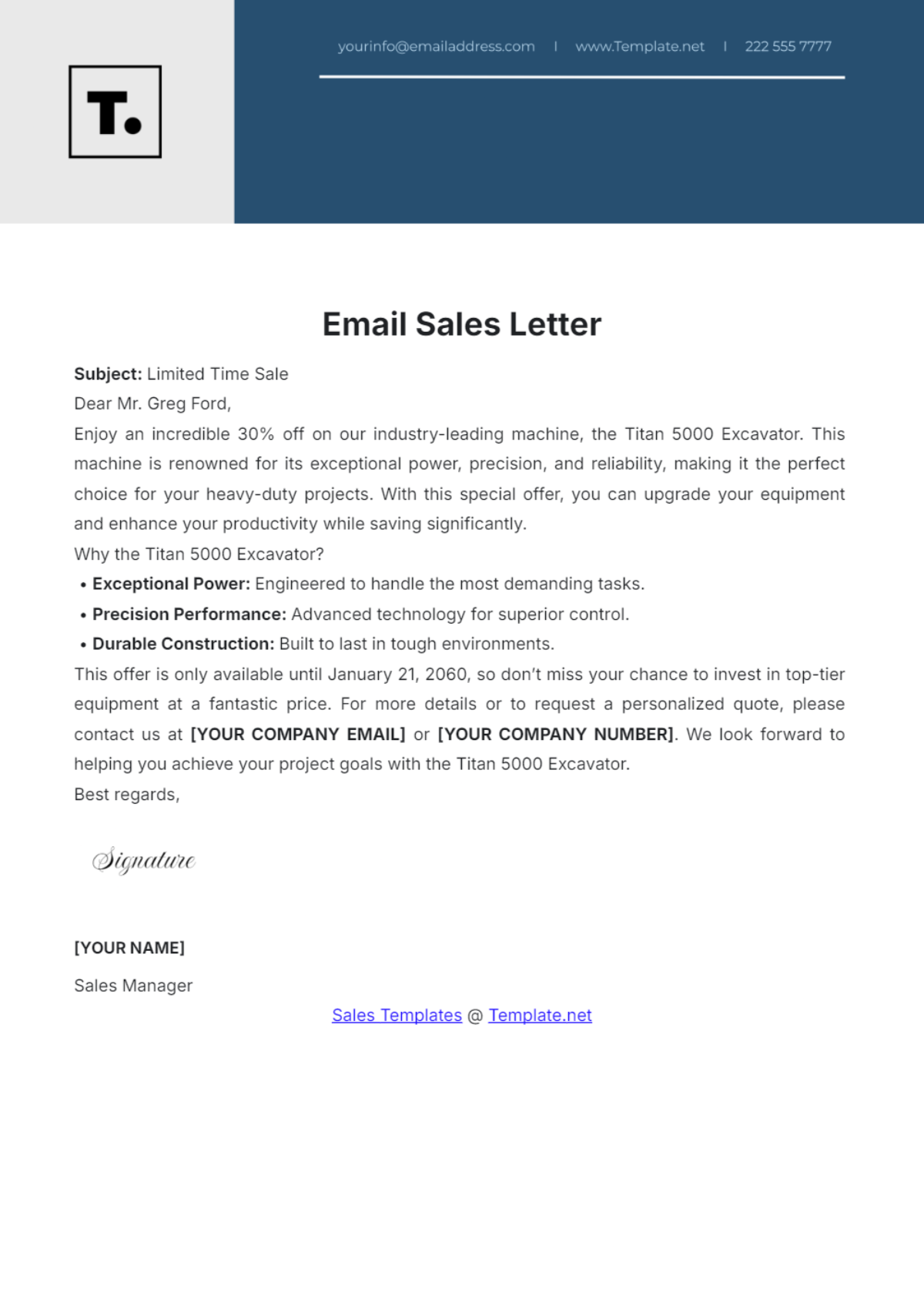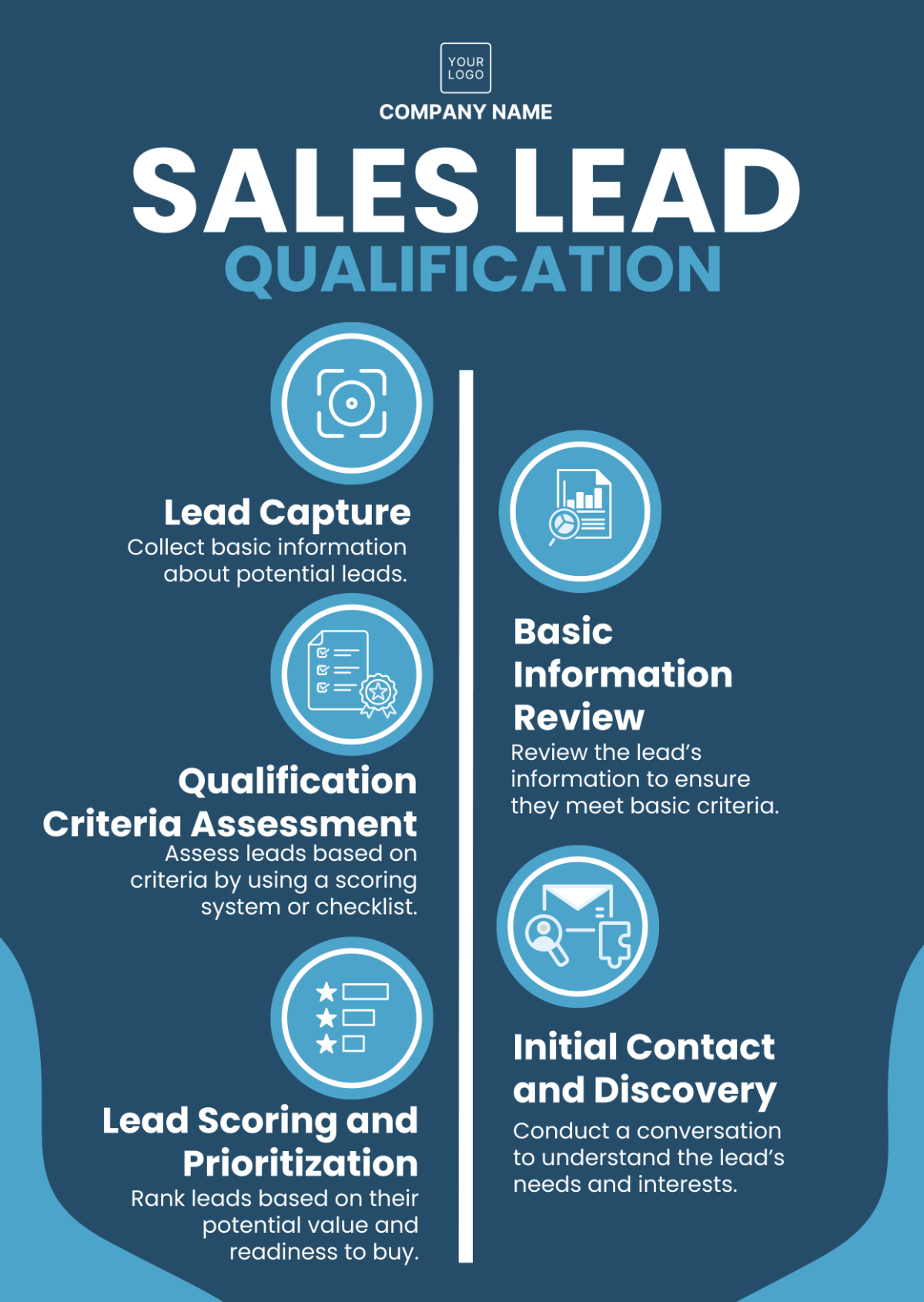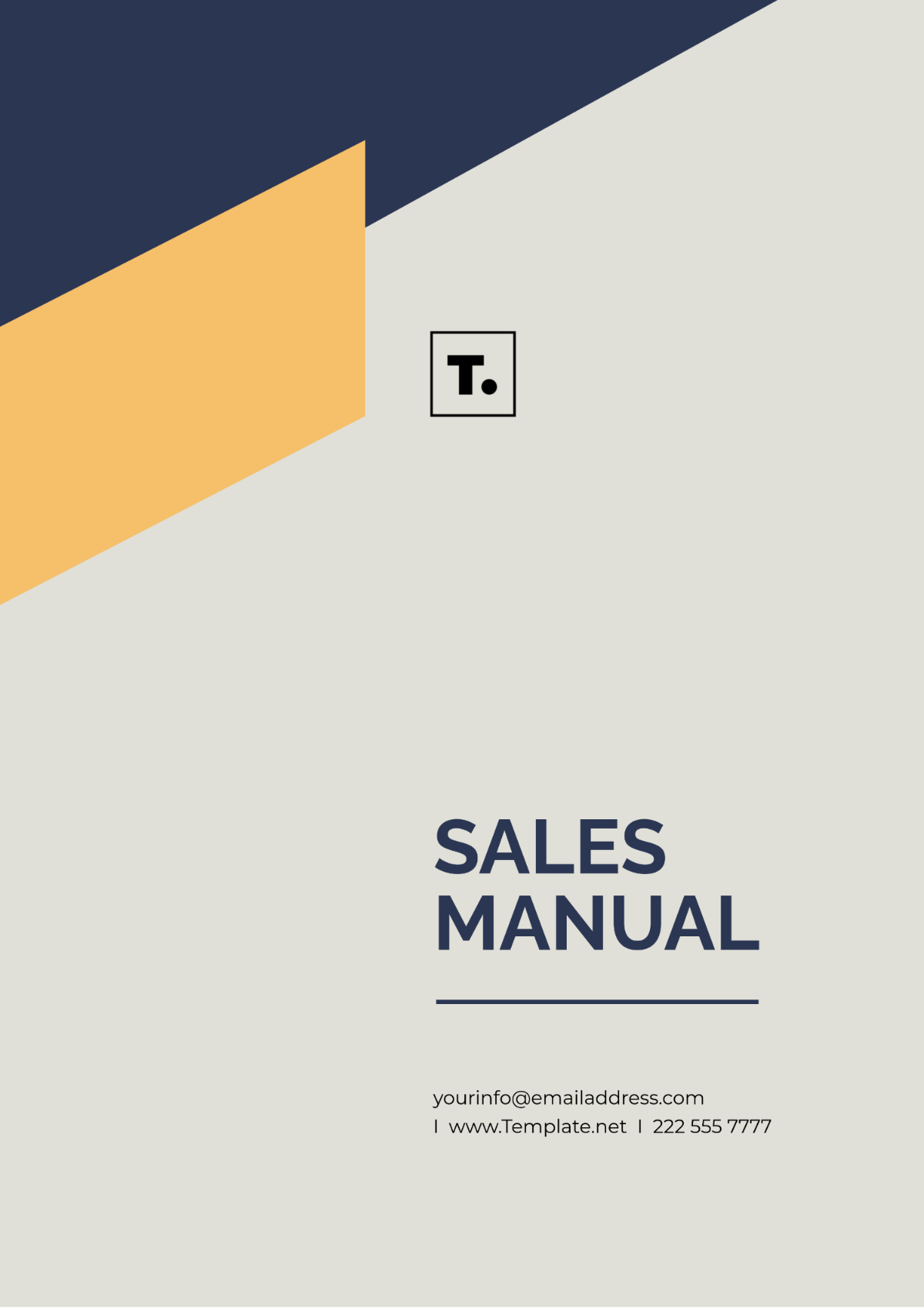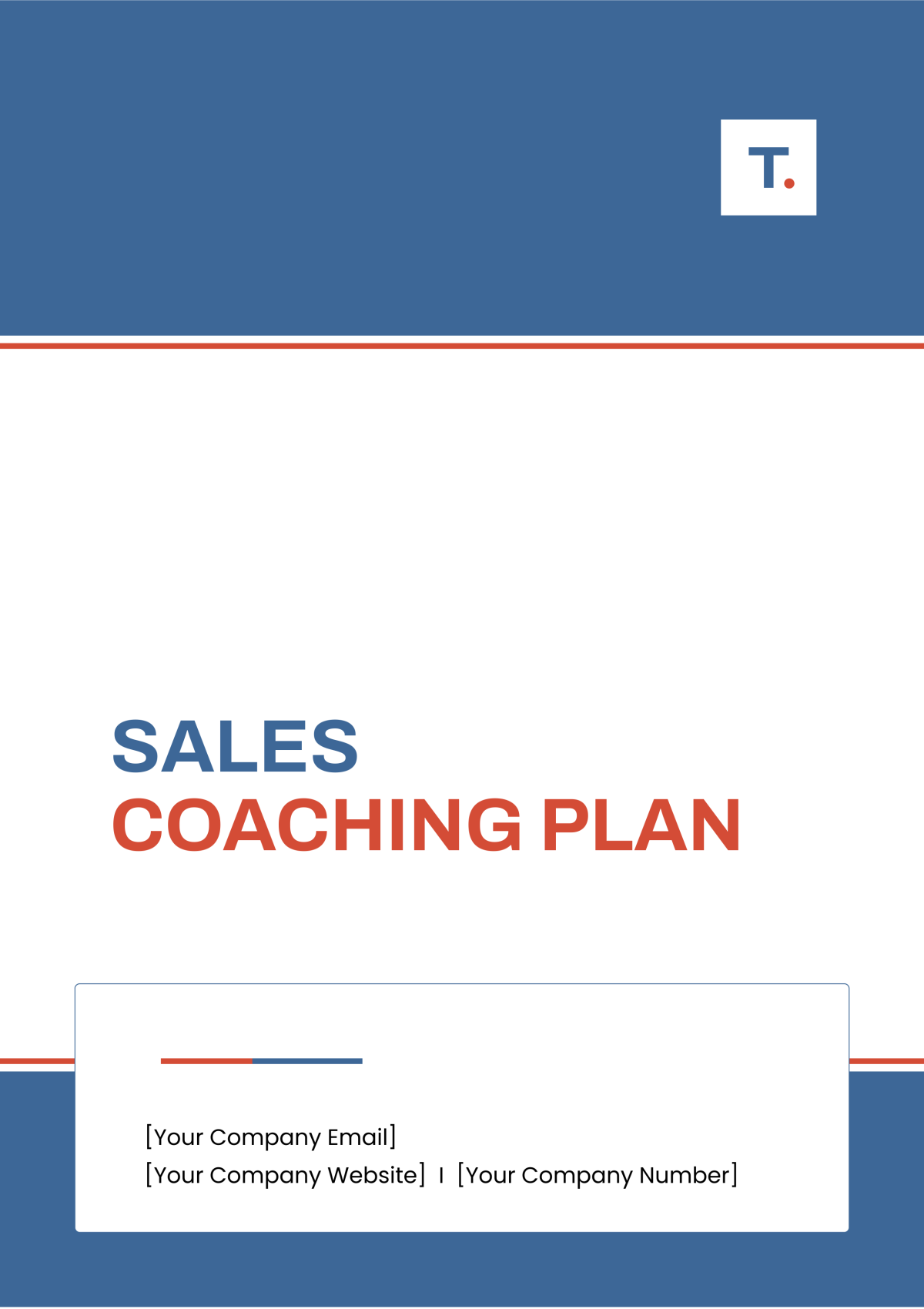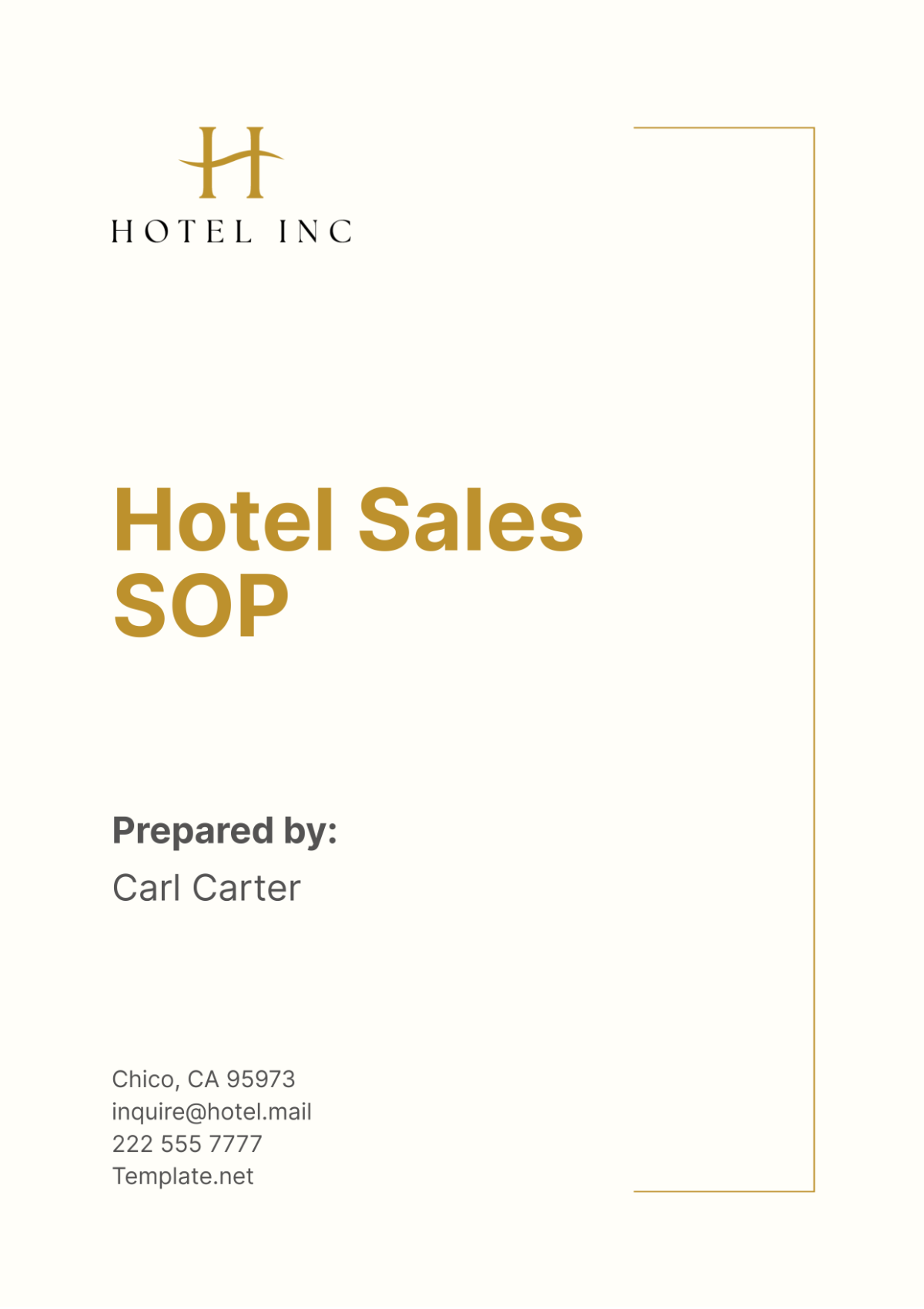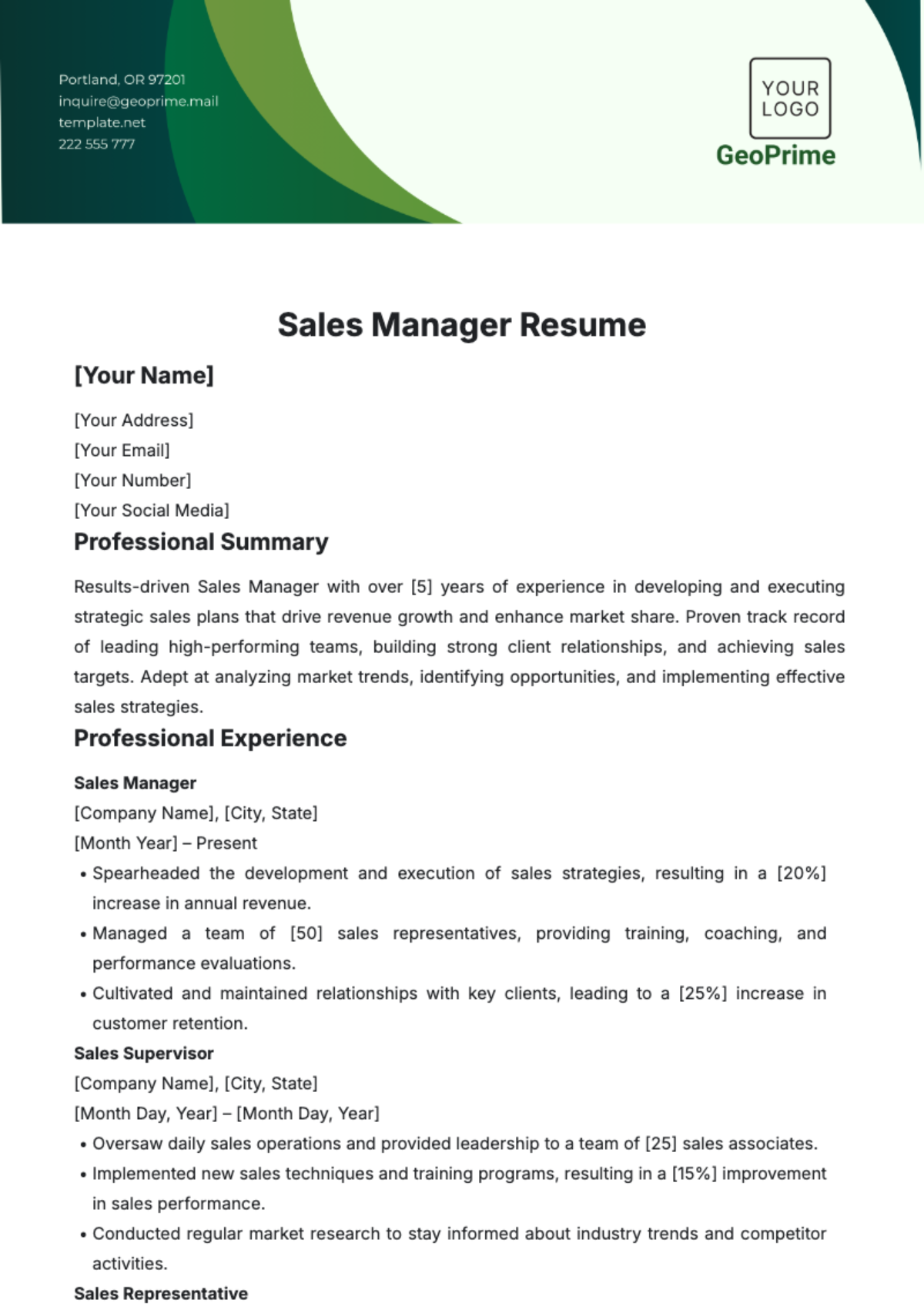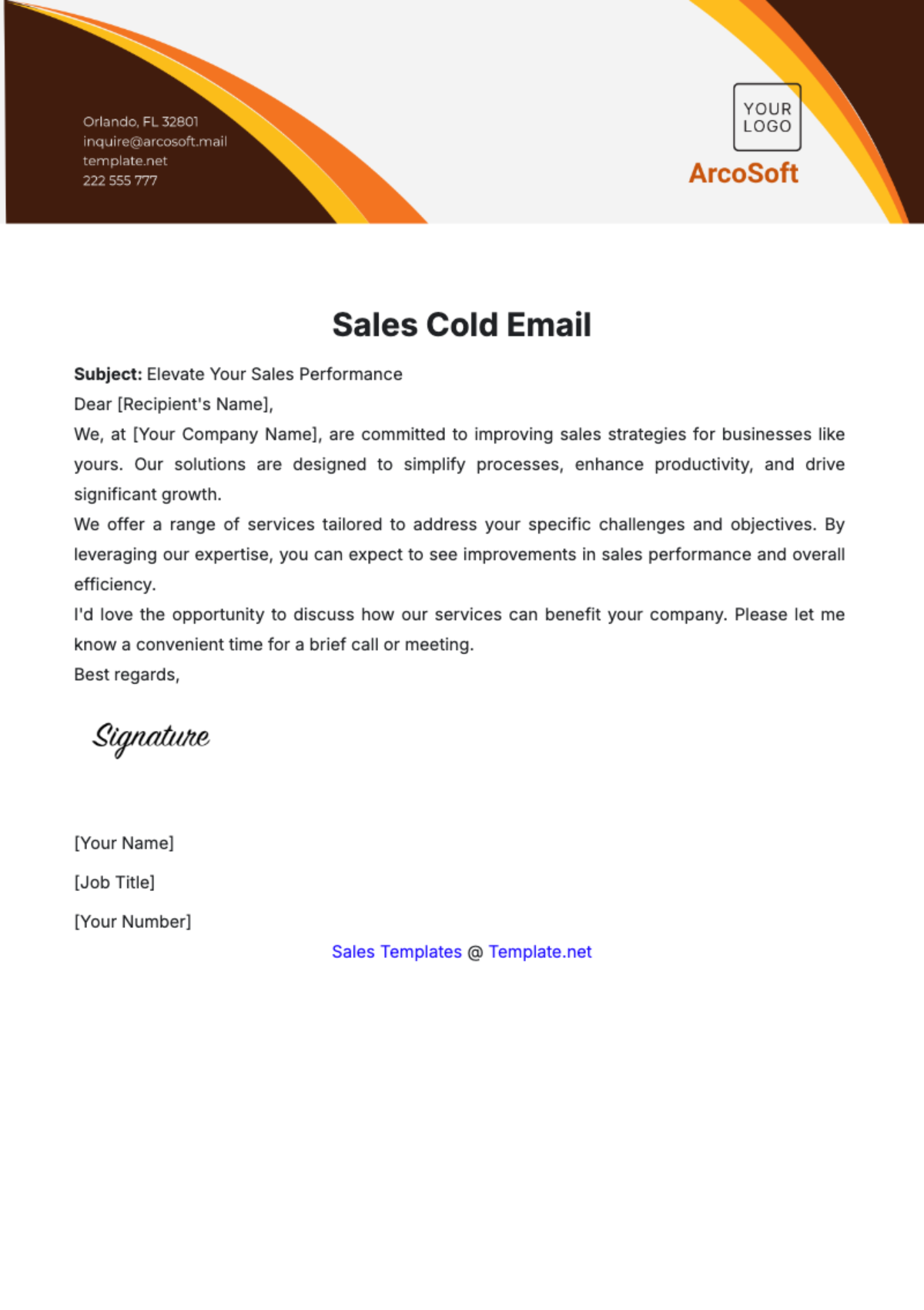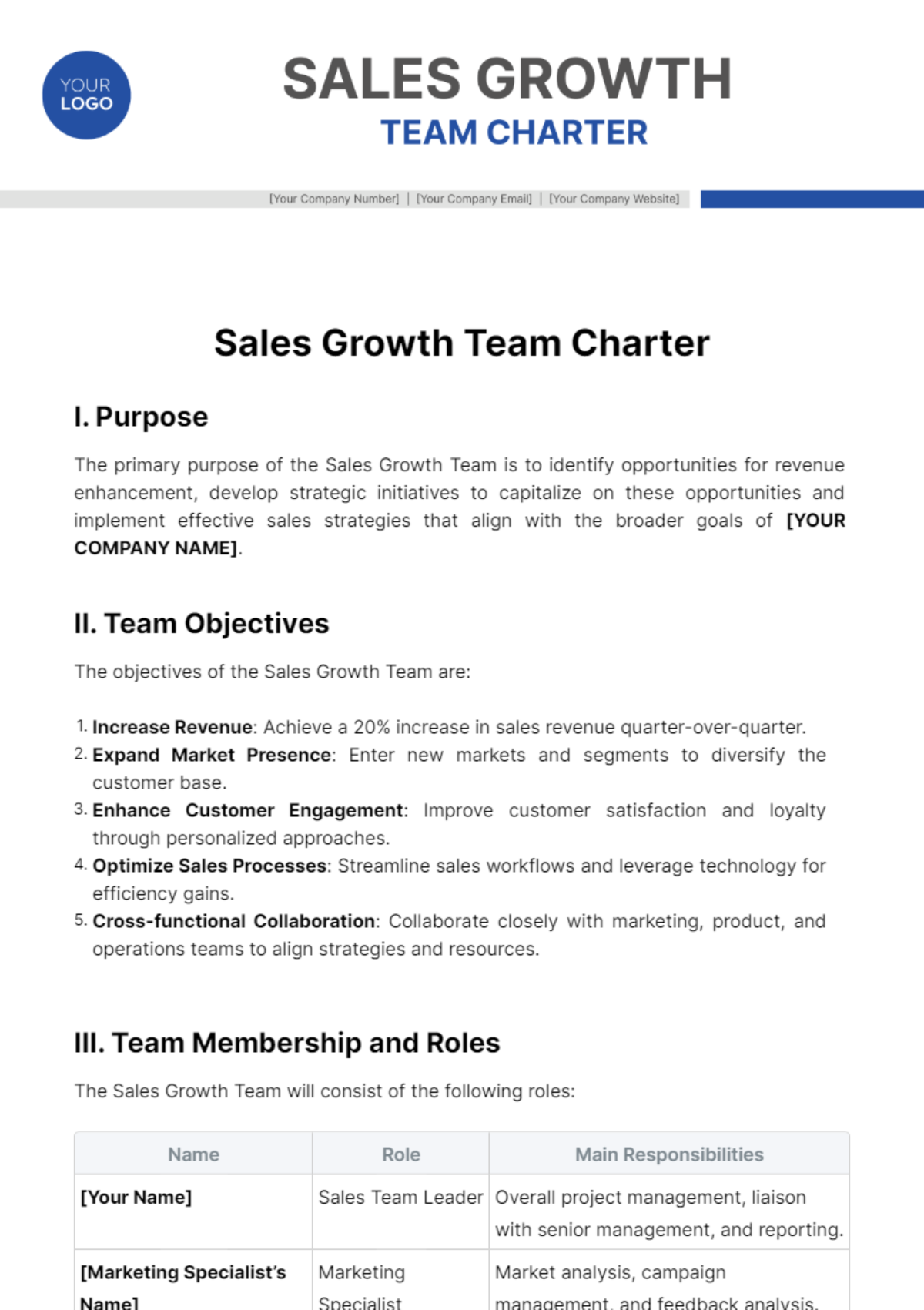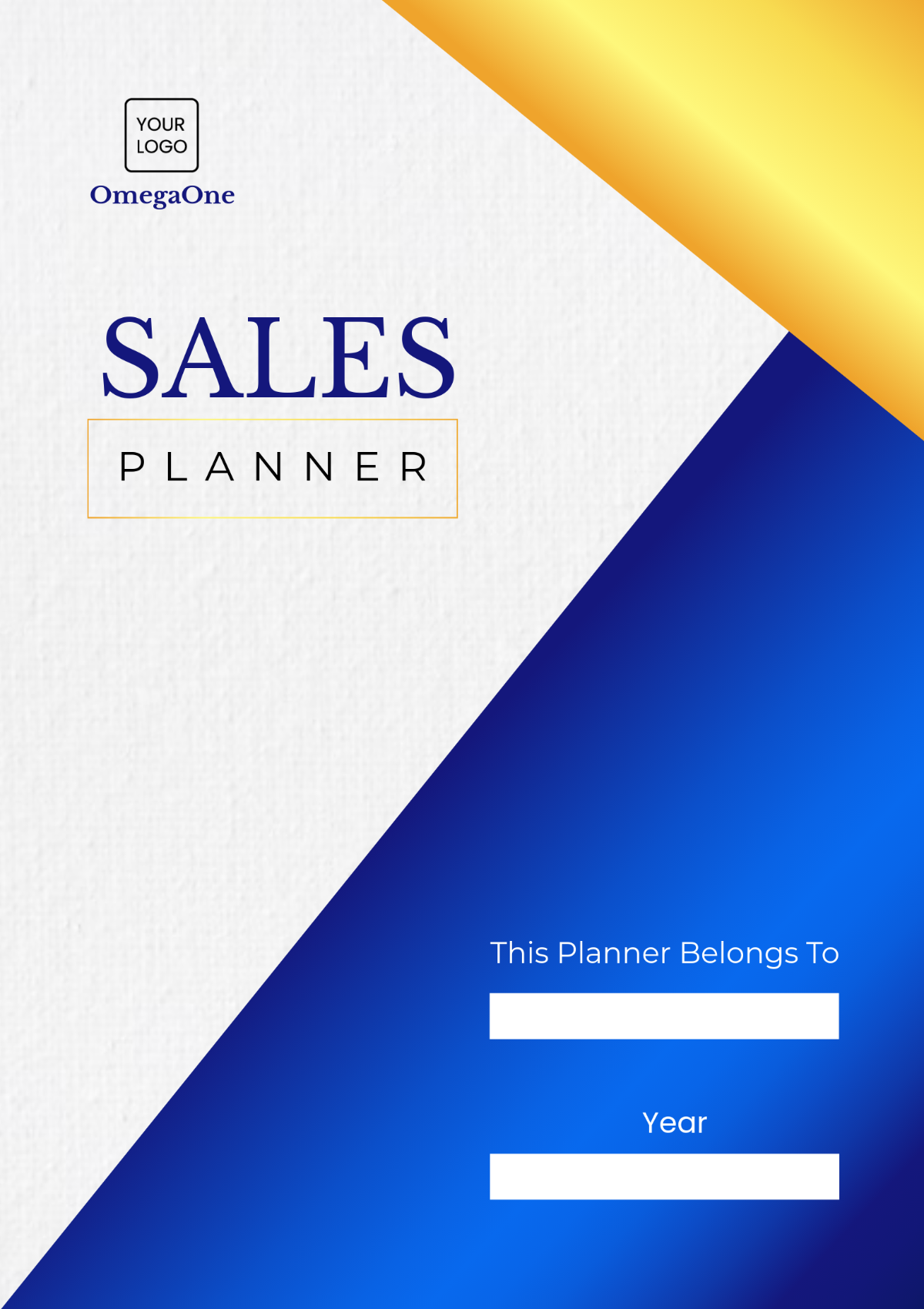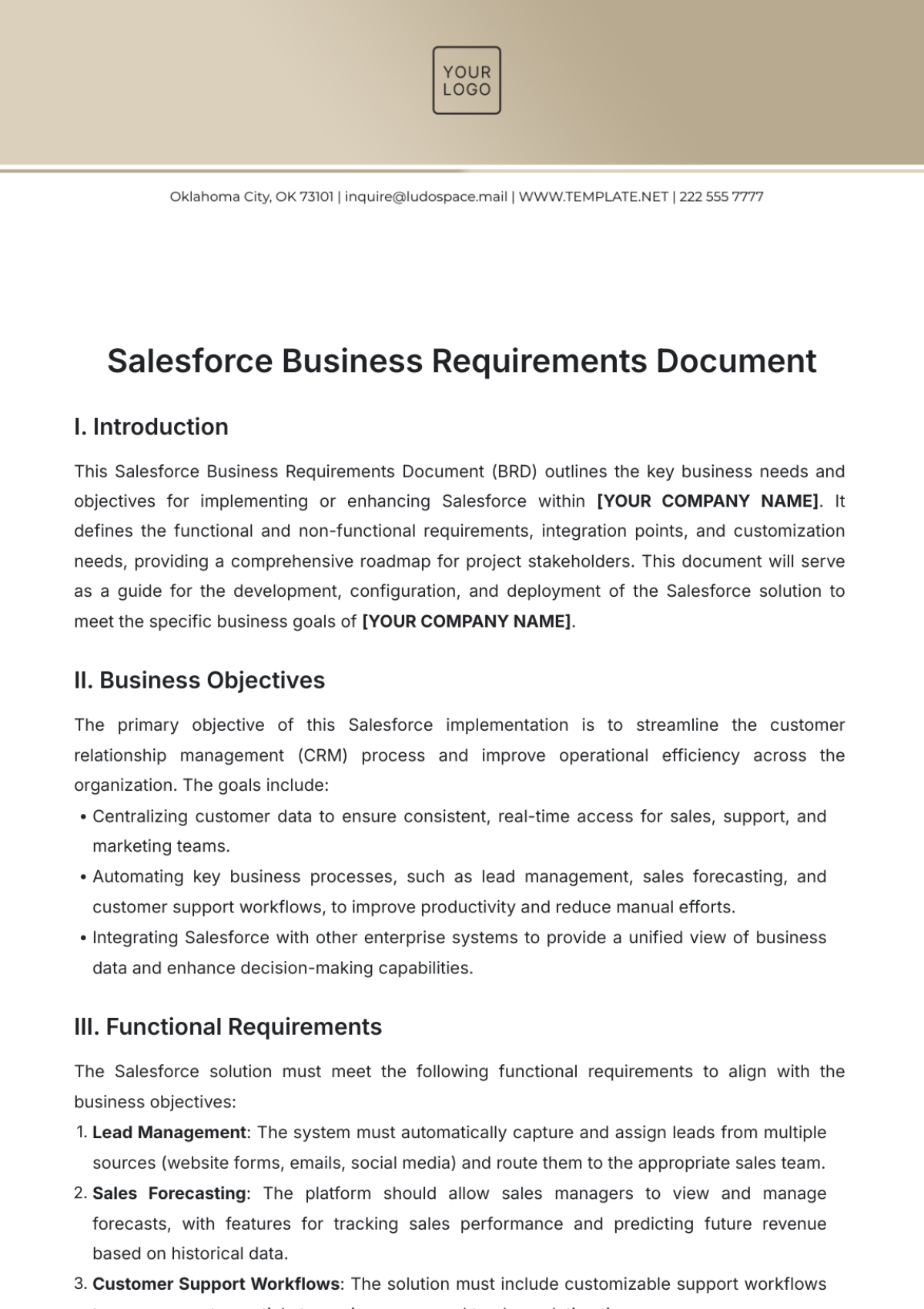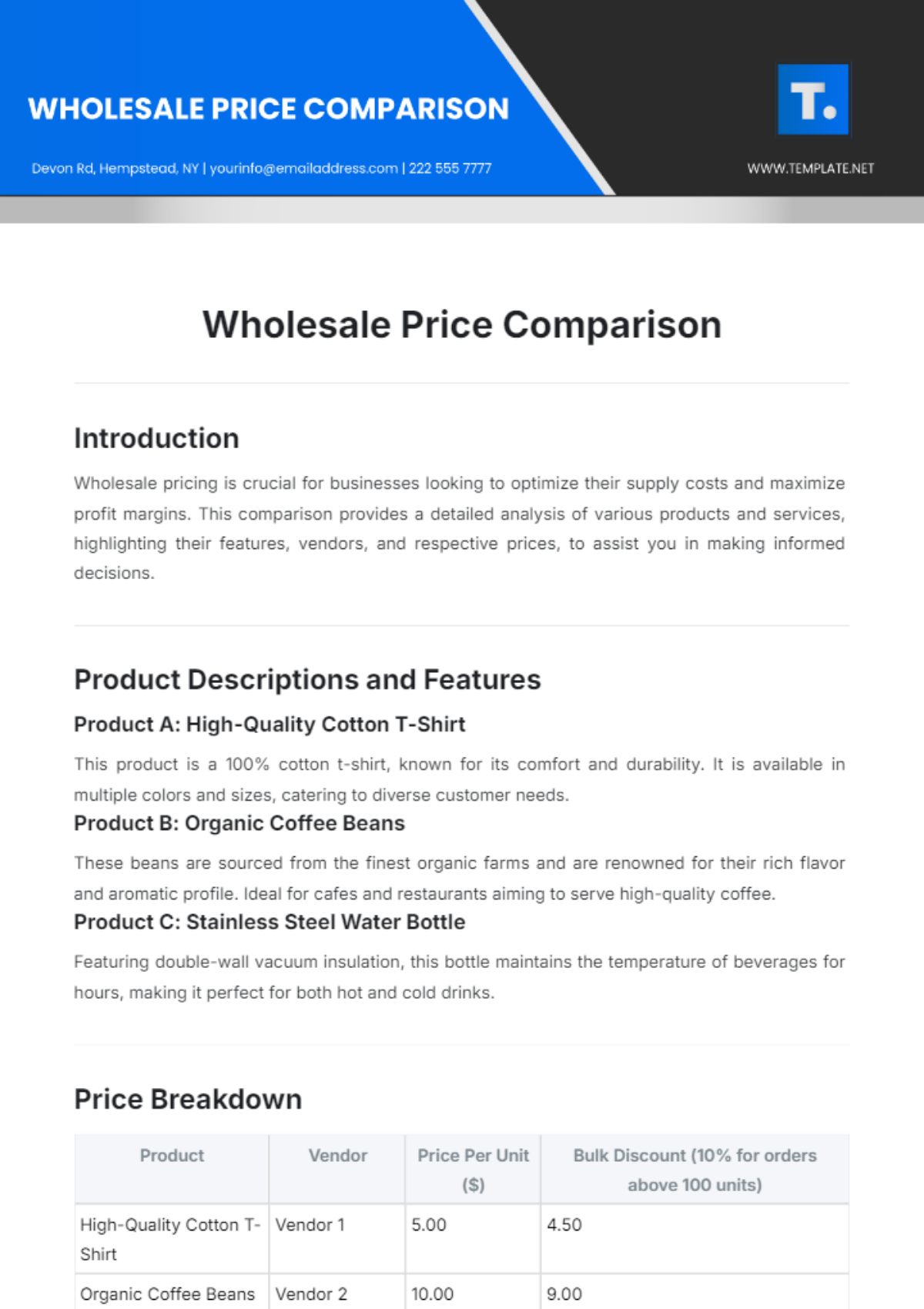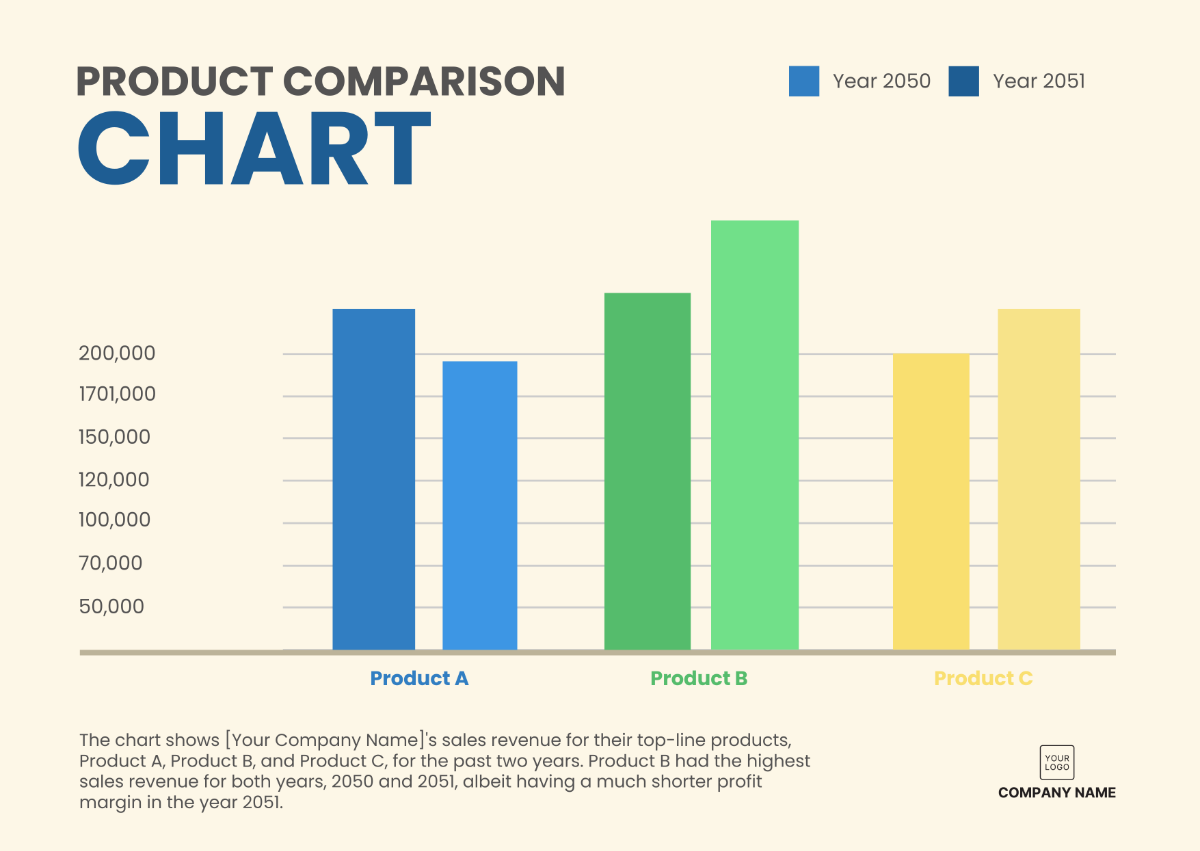Sales Onboarding Management Strategies
1. Introduction
Sales onboarding is a pivotal process within [Your Company Name], representing the cornerstone of our commitment to nurturing talent and fostering a culture of excellence. It serves as the gateway for new sales team members to integrate seamlessly into our dynamic environment, equipping them with the necessary knowledge, skills, and resources to thrive in their roles. This comprehensive document delineates the strategies and methodologies employed in our sales onboarding management, underscoring our dedication to facilitating the success of every individual within our sales force.
Sales onboarding at [Your Company Name] goes beyond mere orientation; it is a strategic investment aimed at maximizing the potential of our sales professionals and driving organizational growth. By providing new hires with a structured and immersive onboarding experience, we ensure that they not only grasp the intricacies of our products and sales processes but also internalize our company values and customer-centric ethos. Through this holistic approach, we cultivate a high-performing sales culture characterized by innovation, collaboration, and unwavering commitment to customer success.
2. Pre-Onboarding Preparation
2.1 Identify Key Objectives:
Define clear and measurable objectives for the sales onboarding program, aligning them with overarching business goals and sales targets. These objectives may include:
Accelerating time-to-productivity by equipping new hires with essential skills and knowledge.
Enhancing sales effectiveness through comprehensive training on sales techniques and strategies.
Instilling a deep understanding of our products, services, and industry landscape.
Cultivating a customer-centric mindset focused on delivering value and fostering long-term relationships.
Objectives should be SMART (Specific, Measurable, Achievable, Relevant, Time-bound) to provide a clear roadmap for both trainers and new hires. They serve as guiding principles that shape the content, delivery, and assessment criteria of the onboarding program.
2.2 Develop Onboarding Plan:
Collaborate with sales leadership, HR, and subject matter experts to craft a comprehensive onboarding plan tailored to the needs and expectations of new sales team members. This plan should encompass the following elements:
Content Outline: Identify key topics and learning objectives to be covered during the onboarding process. This may include sales methodologies, product knowledge, sales tools and technologies, and company policies and procedures.
Training Delivery Methods: Determine the most effective modalities for delivering onboarding content, taking into account factors such as the size of the sales team, geographic dispersion, and technological capabilities. Options may include in-person training sessions, virtual classrooms, e-learning modules, and on-the-job training.
Resource Allocation: Allocate resources such as training materials, equipment, and personnel to support the onboarding program. Ensure that trainers have access to relevant resources and support systems to deliver high-quality training experiences.
Timeline and Schedule: Establish a timeline for the onboarding process, including dates for training sessions, assessments, and milestones. Consider the optimal duration of onboarding based on the complexity of the role and the learning needs of new hires.
Evaluation and Feedback Mechanisms: Define mechanisms for evaluating the effectiveness of the onboarding program and soliciting feedback from participants. This may include pre-and post-training assessments, surveys, focus groups, and one-on-one feedback sessions.
3. Onboarding Curriculum
3.1 Sales Process Training:
New hires will undergo comprehensive training on [Your Company Name]'s sales process, facilitated by experienced sales trainers and subject matter experts. The training will cover the following key areas:
Prospecting: Techniques for identifying and qualifying potential leads, including strategies for researching prospects and initiating contact.
Needs Analysis: Methods for understanding customer needs, pain points, and goals through effective questioning and active listening.
Solution Presentation: Strategies for presenting our products or services in a compelling and customer-centric manner, highlighting key features and benefits.
Objection Handling: Techniques for addressing common objections and concerns raised by prospects, overcoming resistance, and moving the sales process forward.
Closing Techniques: Best practices for asking for the sale, handling negotiations, and securing commitment from prospects.
Training sessions will be interactive and engaging, incorporating role-plays, case studies, and real-life scenarios to reinforce learning and skill application.
3.2 Product Knowledge:
New hires will receive in-depth training on [Your Company Name]'s products or services to ensure a thorough understanding of their features, benefits, and applications. The product knowledge training will encompass:
Product Features: Detailed information about the specifications, functionalities, and capabilities of our offerings.
Value Proposition: Articulating the unique value proposition of our products or services and positioning them effectively in the market.
Use Cases: Examples of how our products or services address specific customer needs or pain points, supported by case studies and success stories.
Competitive Differentiation: Understanding our competitive landscape and how our offerings compare to alternative solutions available in the market.
Training materials will include product manuals, brochures, demo videos, and hands-on exercises to facilitate learning and retention.
3.3 Sales Tools and Technologies:
New hires will be introduced to the various sales tools and technologies used within [Your Company Name] to streamline the sales process and enhance productivity. Training on sales tools will cover:
CRM System: Navigation and utilization of our Customer Relationship Management (CRM) platform for managing customer interactions, tracking sales activities, and generating reports.
Sales Enablement Tools: Familiarization with tools such as sales content management systems, email automation platforms, and digital signature solutions to support sales outreach and engagement.
Communication Platforms: Training on internal communication channels such as messaging apps, video conferencing tools, and collaboration platforms to facilitate teamwork and information sharing.
Training sessions will include hands-on demonstrations, guided exercises, and Q&A sessions to ensure proficiency in using sales tools effectively.
3.4 Role-specific Training:
Tailored training sessions will be provided based on the specific sales roles and responsibilities of new hires. Role-specific training may include:
Inside Sales: Training on conducting sales calls, qualifying leads, and managing pipeline activities primarily through phone and email communication.
Field Sales: Instruction on conducting in-person sales meetings, conducting product demonstrations, and building relationships with prospects and clients.
Account Management: Training on nurturing existing client relationships, identifying upselling opportunities, and addressing customer needs post-sale.
Training content will be customized to address the unique challenges and requirements of each sales role, incorporating real-life scenarios and best practices.
4. Onboarding Delivery Methods
4.1 Classroom Training:
In-person or virtual classroom sessions will be conducted to deliver core onboarding content in a structured and interactive format. Classroom training will include:
Presentations: Engaging presentations delivered by subject matter experts to introduce key concepts, strategies, and best practices.
Group Discussions: Facilitated discussions and group activities to encourage knowledge sharing, collaboration, and peer learning.
Role-plays: Interactive role-playing exercises where new hires simulate sales scenarios and practice applying newly acquired skills.
Classroom sessions will be scheduled at regular intervals throughout the onboarding process to provide opportunities for learning and reflection.
4.2 E-Learning Modules:
Interactive e-learning modules will be developed to supplement classroom training and provide self-paced learning opportunities for new hires. E-learning modules will include:
Multimedia Content: Instructional videos, audio recordings, and animated presentations to deliver content in a visually engaging format.
Interactive Quizzes: Knowledge checks and quizzes to assess understanding and reinforce learning objectives.
Scenario-based Simulations: Virtual simulations of sales scenarios to allow new hires to apply concepts and decision-making skills in a risk-free environment.
E-learning modules will be accessible through [Your Company Name]'s learning management system (LMS), allowing new hires to access training materials anytime, anywhere.
4.3 On-the-Job Training:
New hires will participate in on-the-job training activities to gain practical experience and apply theoretical knowledge in real-world sales situations. On-the-job training will include:
Shadowing: Pairing new hires with experienced sales professionals to observe sales interactions, learn best practices, and receive immediate feedback.
Joint Sales Calls: Accompanying senior sales reps on customer meetings and sales calls to observe sales techniques in action and gain hands-on experience.
Independent Practice: Assigning new hires sales tasks and activities to complete independently, with guidance and support from mentors as needed.
On-the-job training activities will be structured to provide a gradual transition from observation to active participation, allowing new hires to build confidence and competence over time.
5. Onboarding Evaluation and Feedback
5.1 Assess Learning Outcomes:
To ensure the effectiveness of the onboarding program, assessments will be conducted to evaluate new hires' understanding and application of training materials. Assessment methods will include:
Pre-Training Assessments: Surveys or quizzes administered before the start of the onboarding program to gauge baseline knowledge and skills.
Post-Training Assessments: Evaluations conducted after the completion of training modules to measure the retention of key concepts and the ability to apply learned skills.
Performance Metrics: Tracking of performance indicators such as sales metrics, customer satisfaction scores, and pipeline development to assess the impact of onboarding on job performance.
Assessment results will be used to identify areas of strength and improvement, informing future iterations of the onboarding curriculum and delivery methods.
5.2 Solicit Feedback:
Feedback from new hires will be solicited to gather insights into their onboarding experience and identify opportunities for enhancement. Feedback mechanisms will include:
Surveys: Anonymous surveys administered at various stages of the onboarding process to collect quantitative and qualitative feedback on training content, delivery methods, and overall satisfaction.
Focus Groups: Small group discussions facilitated by HR or training personnel to encourage open dialogue and gather in-depth feedback on specific aspects of the onboarding program.
One-on-One Interviews: Individual interviews conducted with new hires to delve deeper into their feedback, address specific concerns, and explore suggestions for improvement.
Feedback collected will be analyzed systematically, and actionable insights will be incorporated into the ongoing refinement of the onboarding program, ensuring its continuous improvement and relevance.
6. Continuous Improvement
6.1 Review and Refine:
The onboarding program will undergo regular reviews and refinements to ensure its ongoing relevance, effectiveness, and alignment with organizational goals. Key activities in the review process will include:
Stakeholder Feedback: Soliciting input from key stakeholders, including sales leadership, trainers, and new hires, to gather diverse perspectives on the strengths and weaknesses of the onboarding program.
Performance Analysis: Analyzing onboarding-related metrics such as time-to-productivity, sales performance, and employee retention rates to identify areas for improvement and optimization.
Content Updates: Incorporating updates to training content, materials, and delivery methods based on changes in market dynamics, product offerings, or sales strategies.
Reviews will be conducted on a periodic basis, with adjustments made iteratively to ensure that the onboarding program remains a strategic asset in driving sales success and employee engagement.
6.2 Ongoing Training and Development:
In addition to initial onboarding, [Your Company Name] is committed to providing ongoing training and development opportunities for sales team members to support their continuous growth and success. This will include:
Advanced Training Workshops: Offering specialized workshops and seminars on advanced sales techniques, industry trends, and emerging technologies to deepen expertise and expand skill sets.
Certification Programs: Providing opportunities for sales professionals to earn certifications in relevant areas such as sales methodology, product knowledge, or industry-specific domains.
Mentorship Programs: Pairing new hires with experienced mentors within the organization to provide guidance, support, and career development advice.
Ongoing training and development initiatives will be tailored to individual career goals and learning preferences, empowering sales team members to excel in their roles and contribute to the long-term success of [Your Company Name].
7. Conclusion
Effective sales onboarding management is foundational to [Your Company Name]'s commitment to excellence and success in the market. By investing in a robust onboarding program, we ensure that new sales team members are equipped with the knowledge, skills, and resources needed to excel in their roles from day one. Through a combination of comprehensive training, ongoing support, and a culture of continuous improvement, we cultivate a high-performing sales force that drives business growth and delivers exceptional value to our customers.
As we continue to refine and optimize our sales onboarding strategies, we remain steadfast in our dedication to empowering every individual within our sales team to reach their full potential. By fostering a culture of learning, collaboration, and accountability, we position [Your Company Name] as a leader in the industry, poised for sustained success in the ever-evolving marketplace.
For further inquiries or assistance regarding our sales onboarding program, please contact [Your Company Name] at [Your Company Email] or visit [Your Company Website].
8. Additional Resources
8.1 FAQs (Frequently Asked Questions):
A compilation of commonly asked questions and answers related to the sales onboarding process, providing clarity and guidance for new hires and stakeholders.
8.2 Training Materials Repository:
A centralized repository of training materials, resources, and tools used in the onboarding program, accessible to trainers and new hires for reference and self-directed learning.
8.3 Best Practices Library:
A collection of best practices, case studies, and success stories from top-performing sales professionals within [Your Company Name], serving as inspiration and guidance for new hires embarking on their sales journey.
8.4 Feedback Mechanisms:
Information on how new hires and stakeholders can provide feedback on the onboarding program, including surveys, suggestion boxes, and designated contact points for inquiries and suggestions.
8.5 Continued Learning Opportunities:
Recommendations for additional learning resources and professional development opportunities beyond the initial onboarding program, including industry events, webinars, and online courses relevant to sales professionals.




